- Публикатор: Арик Шрага (motoknitok)
- Текст: Arik Shraga
- Фото: Arik Shraga
Arkhangelsk region, Pinega district. Summer of 2008. Pastoral landscapes, endless ancient northern songs, gentle and unusual dialect, holidays and fun. That's what my first, spontaneous trip to the northern villages was about. But something else, impending like a dark cloud on a cloudless sky, forced me to take a closer look at what was happening. Extinction crawled towards the villages. When I got back there the next winter, I saw abandoned houses, entire villages that had lost their inhabitants. People fled away to the cities from the villages lacking jobs and future. Centuries long history of the Pinega villages was coming to its end right before my eyes.
“Will you have dinner?” Rimma Petrovna asks, running past me to the kitchen. It's about 11 o'clock in the morning. Half an hour ago the dawn broke. In the silence of a winter morning, her bare steps on the wooden floorboards echo loudly.
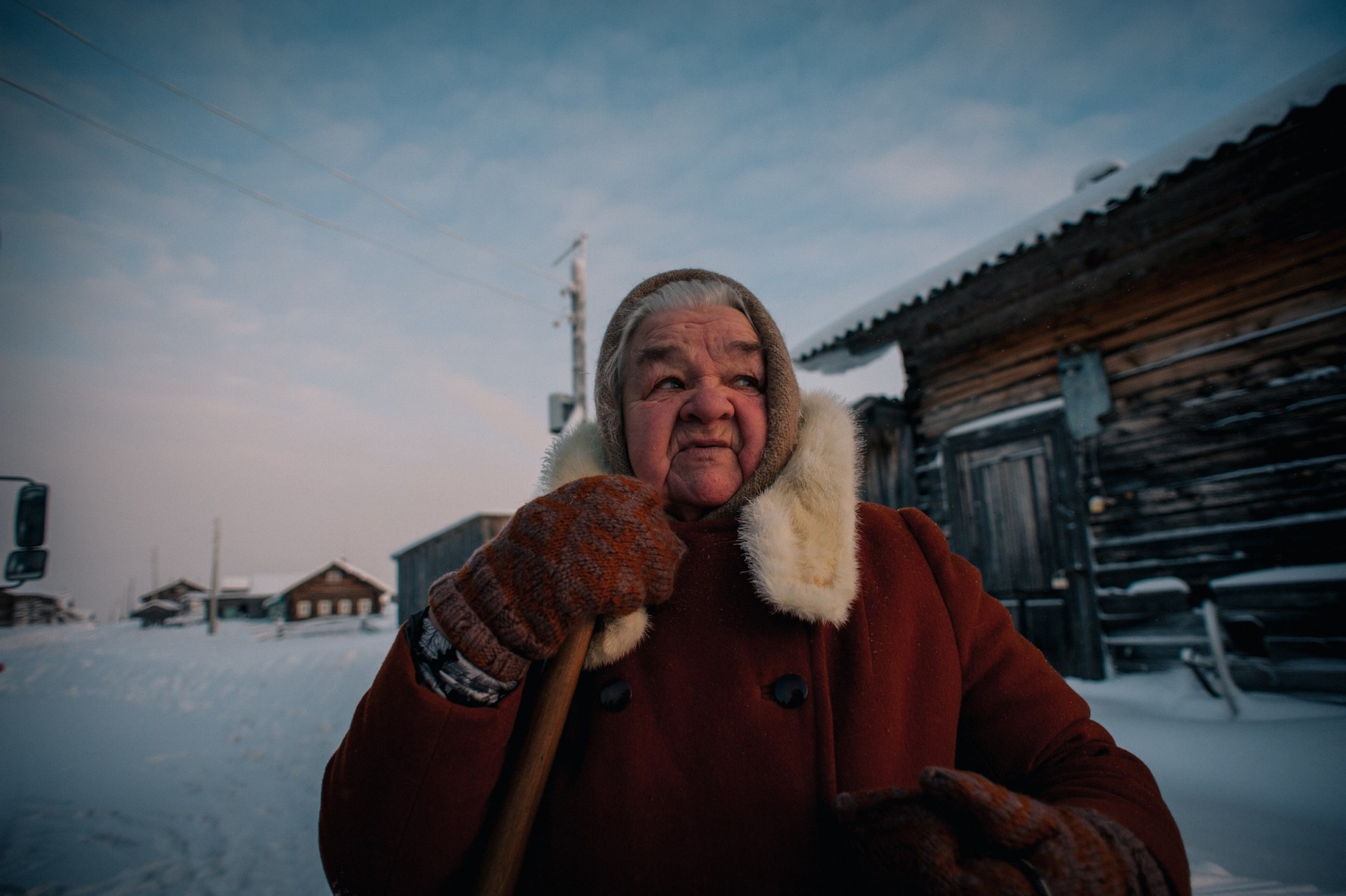
2019. Cheshegora village. Rimma Petrovna
I wouldn't dare to call her an “old woman” or mark her age in any other way. In her youth, this girl used to fly around, and she continues to fly around as much as her health allows her. Pinega women, especially the elderly, always call each other "girls". They never get a chance to get old. They buried their husbands long ago, they need to chop firewood, carry water buckets, heat furnaces, clear snowdrifts, go to the forest, all on their own.
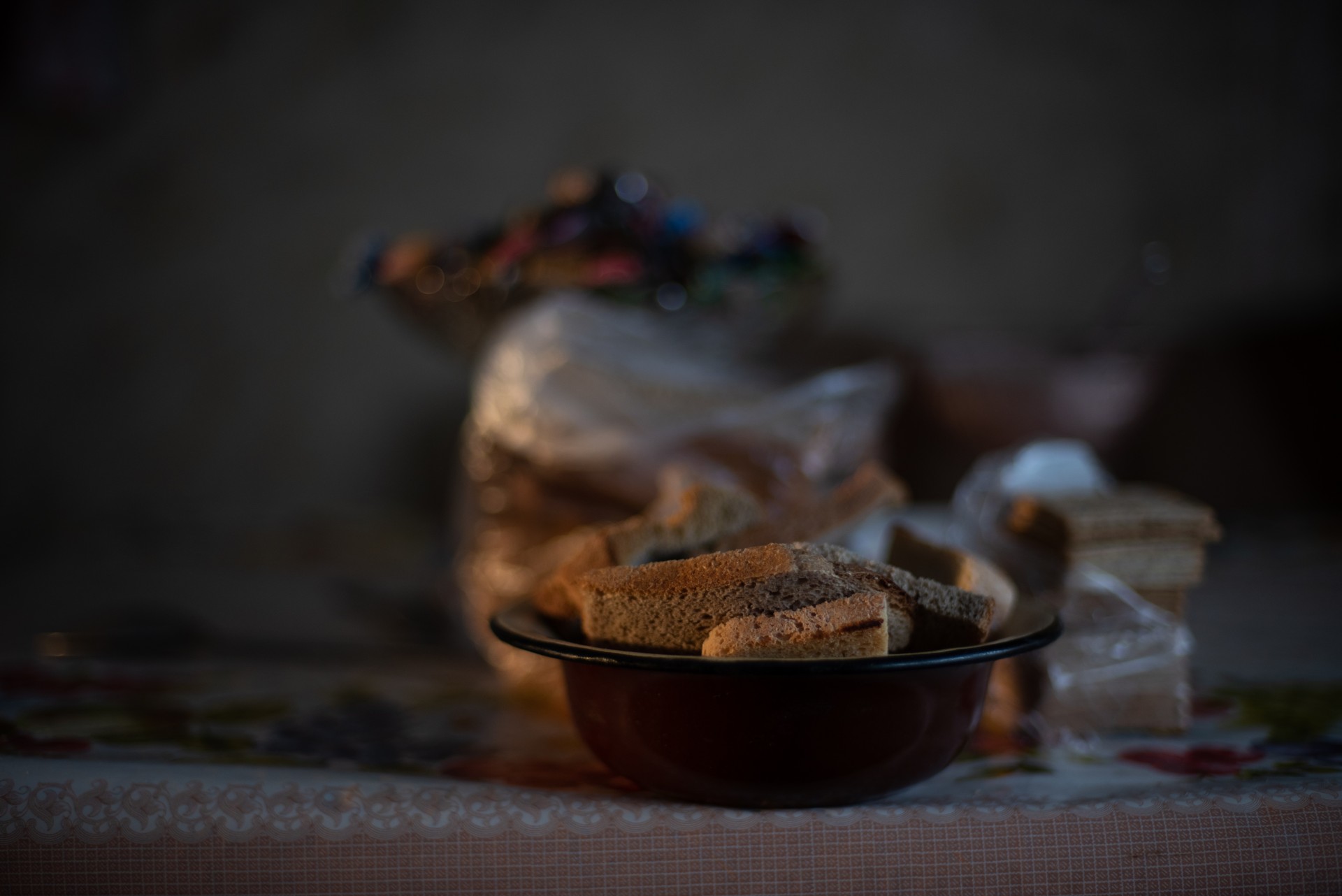
I have no idea when Rimma Petrovna takes her time to cook, but from the Russian stove a cast-iron pan with solonina (fried potatoes with pickled mushrooms) comes up, the table gets filled with musyonka (flour porridge), some jams, pickles, steamed turnip, moistened radish, wilted tea prepared in a French press (“we collected it in the summer with my daughter and lined with it entire floor in the house when it was drying” comments Rimma), and then comes the king of the table, a rare product — "Jubilee" biscuits brought by someone from a city. This biscuit box is almost the only thing bought for money, all the rest is grown, collected, salted, preserved by Rimma herself. “Take more biscuits, don't hesitate, come on!” — Rimma Petrovna pushes me to the valuable delicacy.
How in the world has a "Jubilee" biscuit become a luxury? How has bread become a luxury? How, after all, in a village located next to Pinega river, has water become a luxury?
How in the world has a "Jubilee" biscuit become a luxury? How has bread become a luxury? How, after all, in a village located next to Pinega river, has water become a luxury?
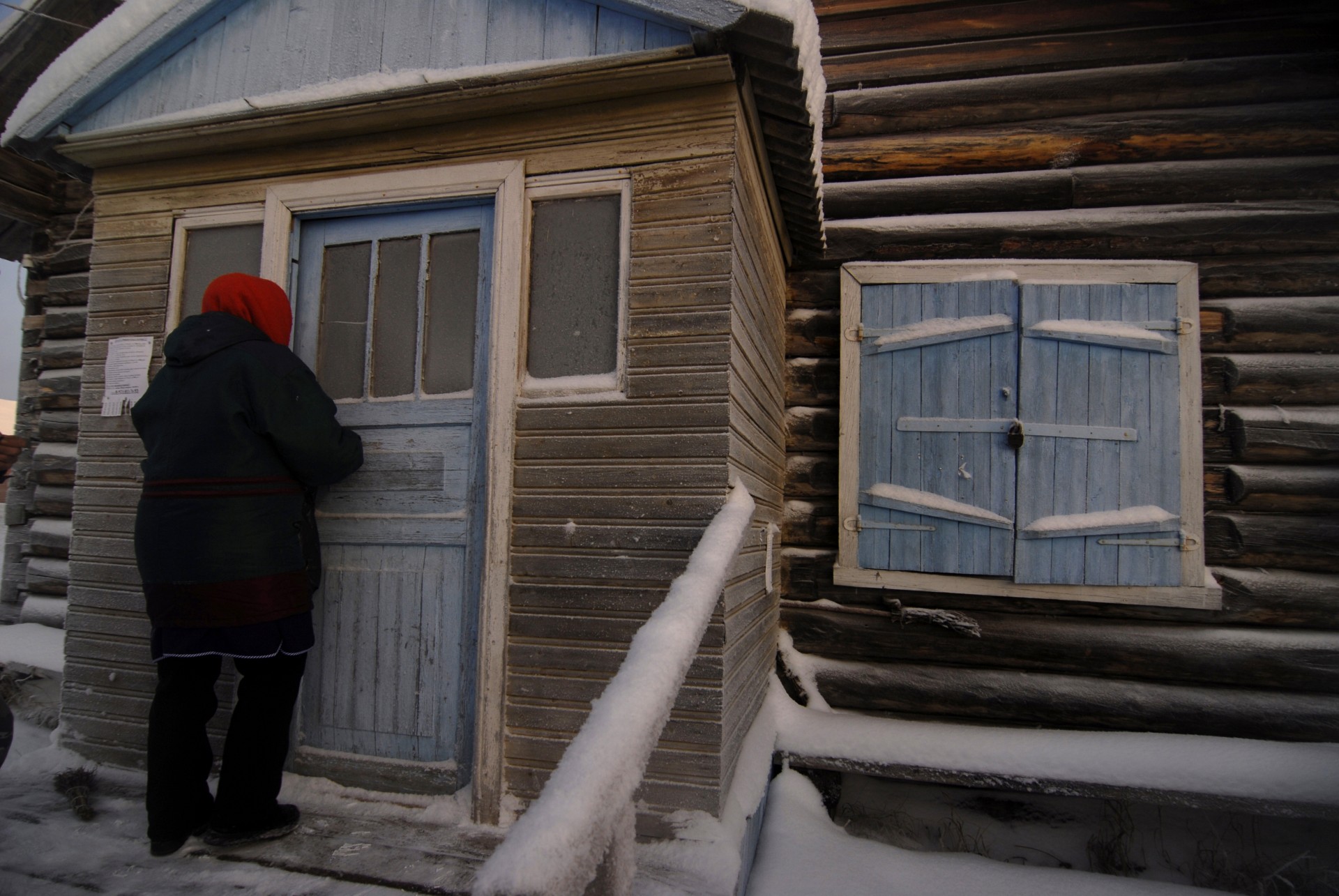
2010. Cheshegora village. Grocery
I remember this grocery store in Cheshegora. It is now closed for good, but back in 2011 it still worked. One hour a week. Its shelves were dreary, as in USSR of the late eighties. Still, the villagers regularly came to this store. After all, they could buy here some bread delivered from across the river!
If you didn't show up on time at the grocery to buy food, all you can do is wait for a mobile shop which should arrive on Wednesday, maybe. Or on Thursday.
Rimma Petrovna gets a call from the district center: “Petrovna, we are heading to you”. It means that the mobile grocery left Karpogory. Petrovna spreads the important news across the village by calling each of six houses which are still inhabited: “The merchants coming!”
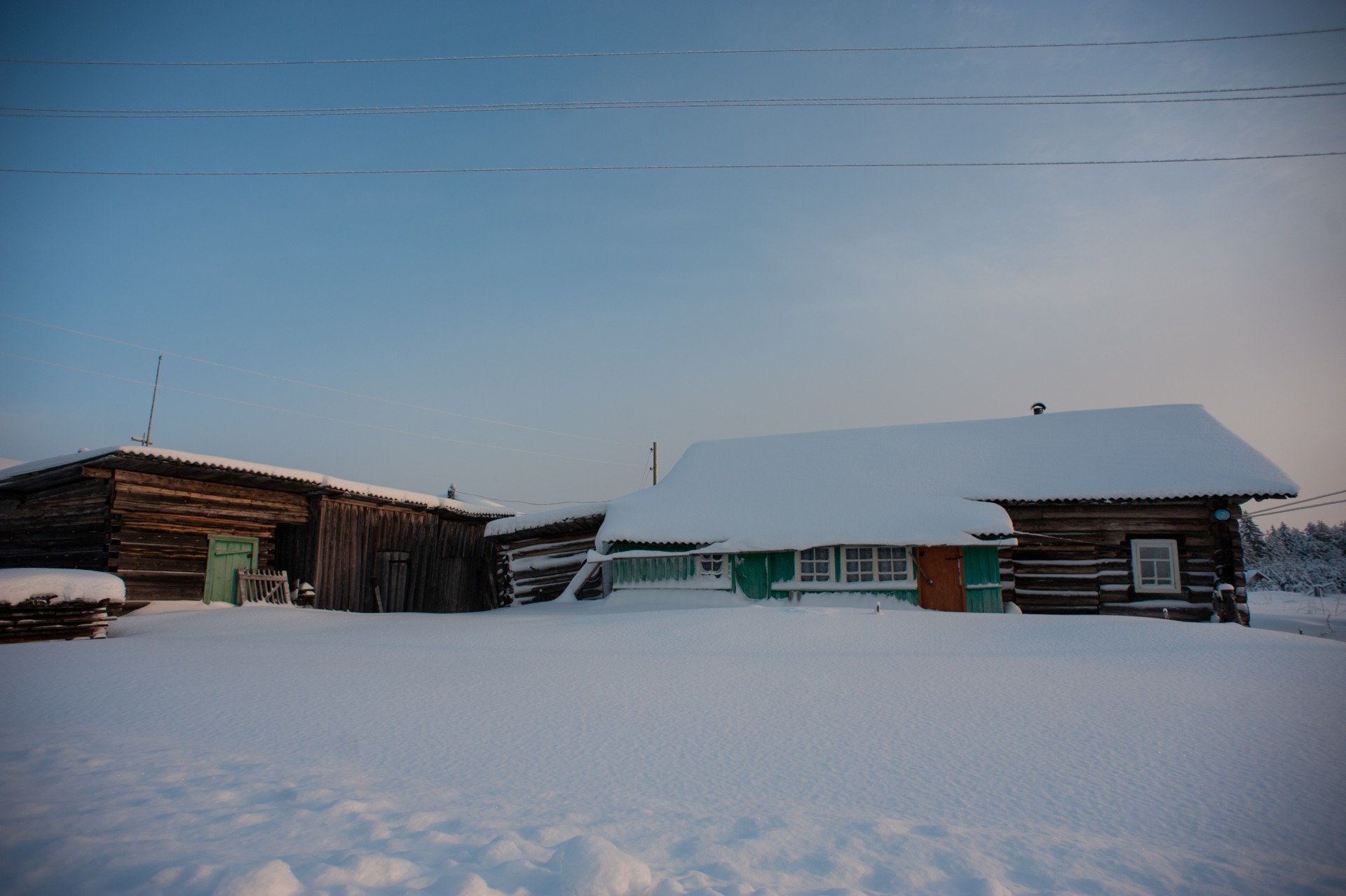
2019. Cheshegora village
An hour later, people flock from all corners of the village. There are about ten of them living in Cheshegora, and all are well over sixty. They walk slowly to the village center, where the grocery used to be, and where the last remaining light pole still illuminates a tiny circle around itself at nights. They walk past abandoned huts, dozens of courtyards covered with untouched snow, a shiny red payphone installed recently by the authorities and never used by anyone. They drag handmade sledges, old cradles from baby carriages — whatever one can use to pack the food and bring it home.
You need to buy more, because the “merchants” come only once a week, and they don't come when it storms. Cookies, bread, butter, frozen fish, wine ("wine" is for vodka here), tea, flour, milk, matches, some kind of sausages. What else. Oh, eggs. Well, that's enough. We will last a week.
It's January. The frost is harsh, -35 degrees Celsius (-31 Fahrenheit). The saleswoman in the back of the grocery truck is bending over a calculator and a cashier, counting money with her frozen fingers. People line up and close their faces with mittens to escape the cold.
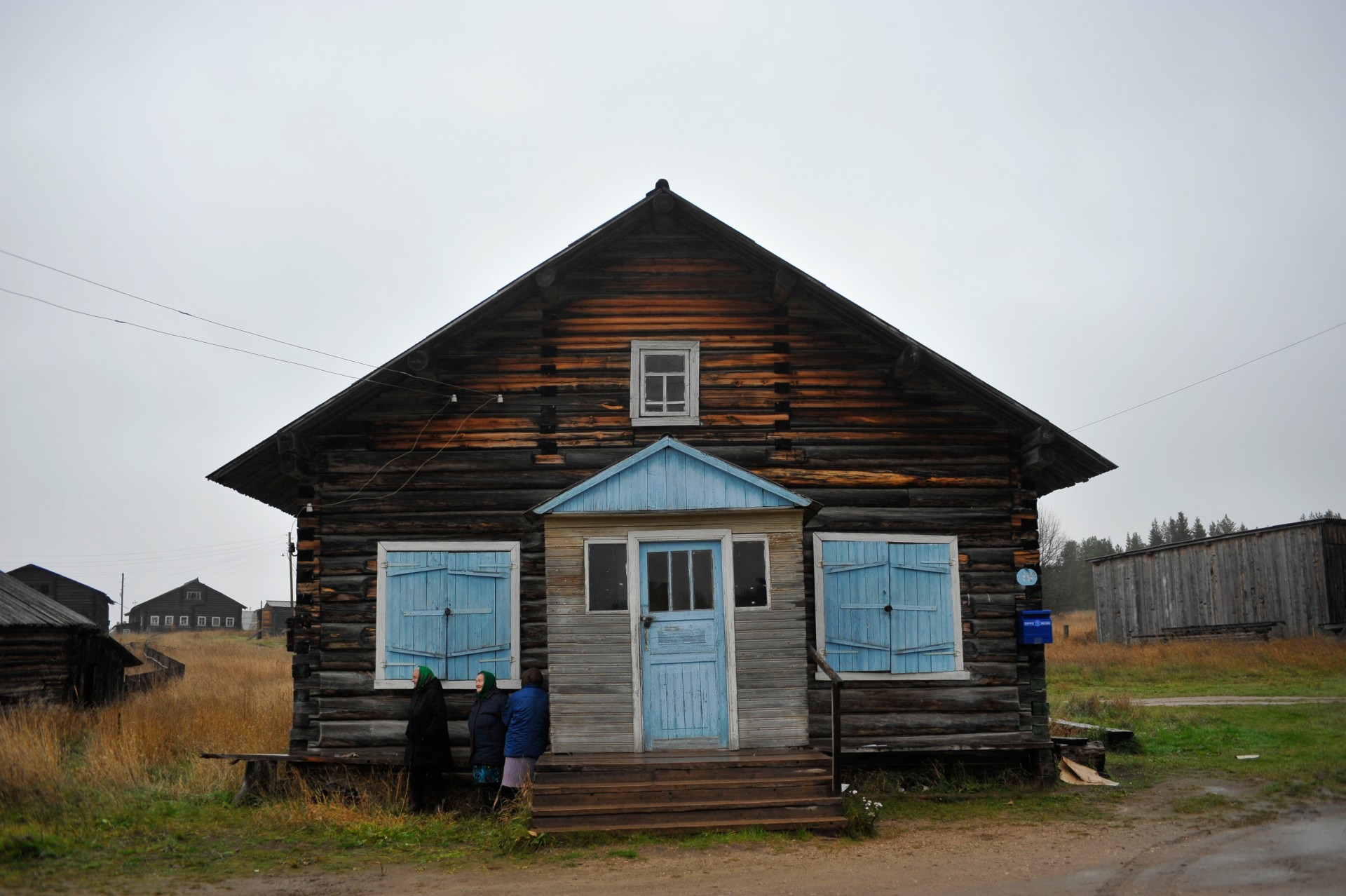
2011. Cheshegora village. Waiting for a mobile grocery
A discussion is going on in the line:
- Petrovna, did you call Mishka? Why didn't he show up yet?
- He's drunk, can't walk really.
- What a fool, he gonna drink until he dies.
So, Mishka's left without food for a week.
- Petrovna, did you call Mishka? Why didn't he show up yet?
- He's drunk, can't walk really.
- What a fool, he gonna drink until he dies.
So, Mishka's left without food for a week.
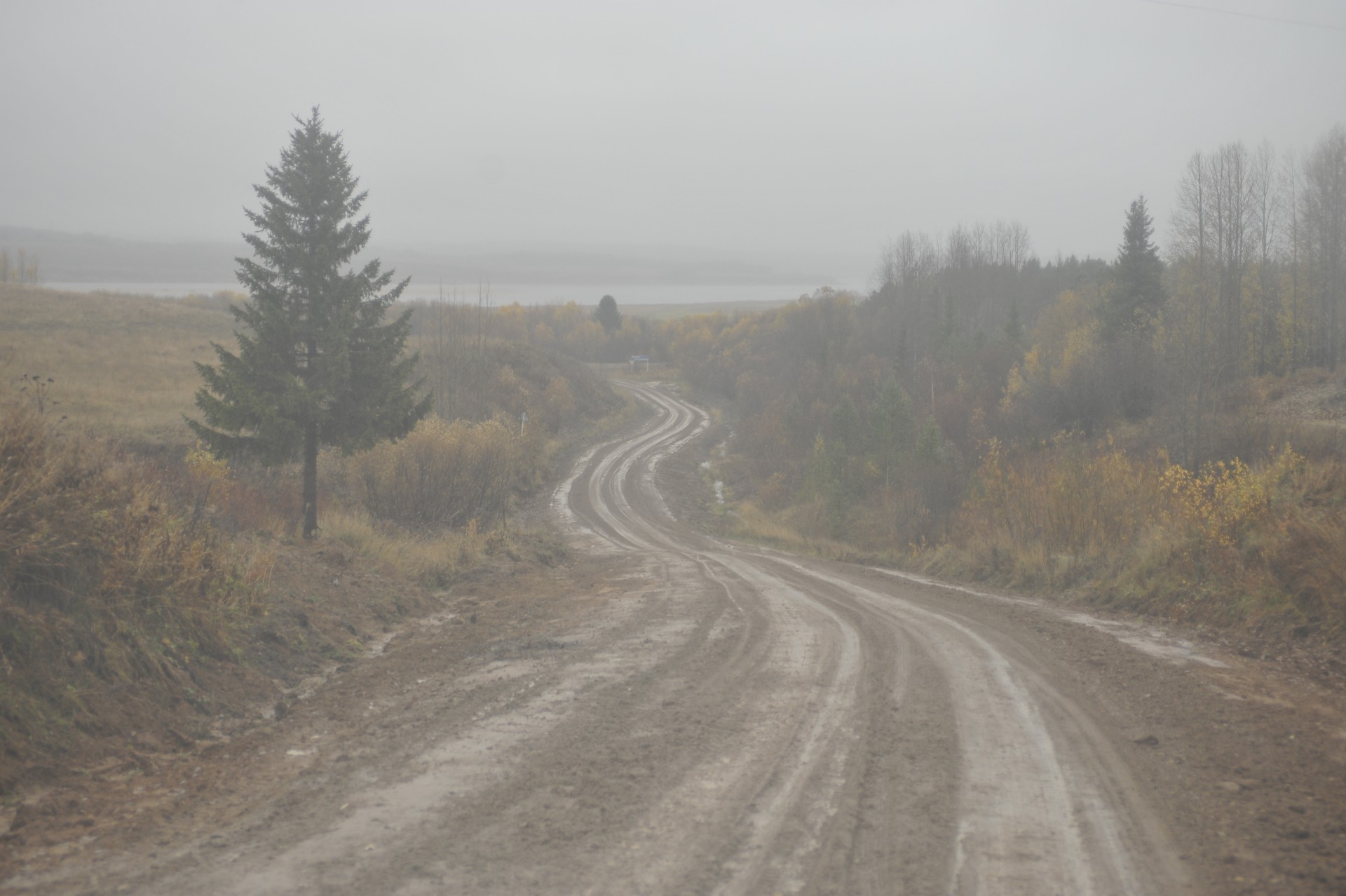
2011. In the grocery truck heading to Kusogora village
The route of the mobile grocery is fifty kilometers long. The truck stops in five villages which have no groceries. In Kurga village lives one person. In Turiya village there is one person as well. Shasta has two. Cheshegora has ten. Kusogora is an exception, there are a couple of dozens of residents, and not all of them are pensioners. With this number of clients, the owner of the Karpogory store gets no profit from the mobile shop project. Even taking into account mad food prices, this looks more like a charity, and no one knows if the goodwill of merchant Viktor Bogdanov will last long.
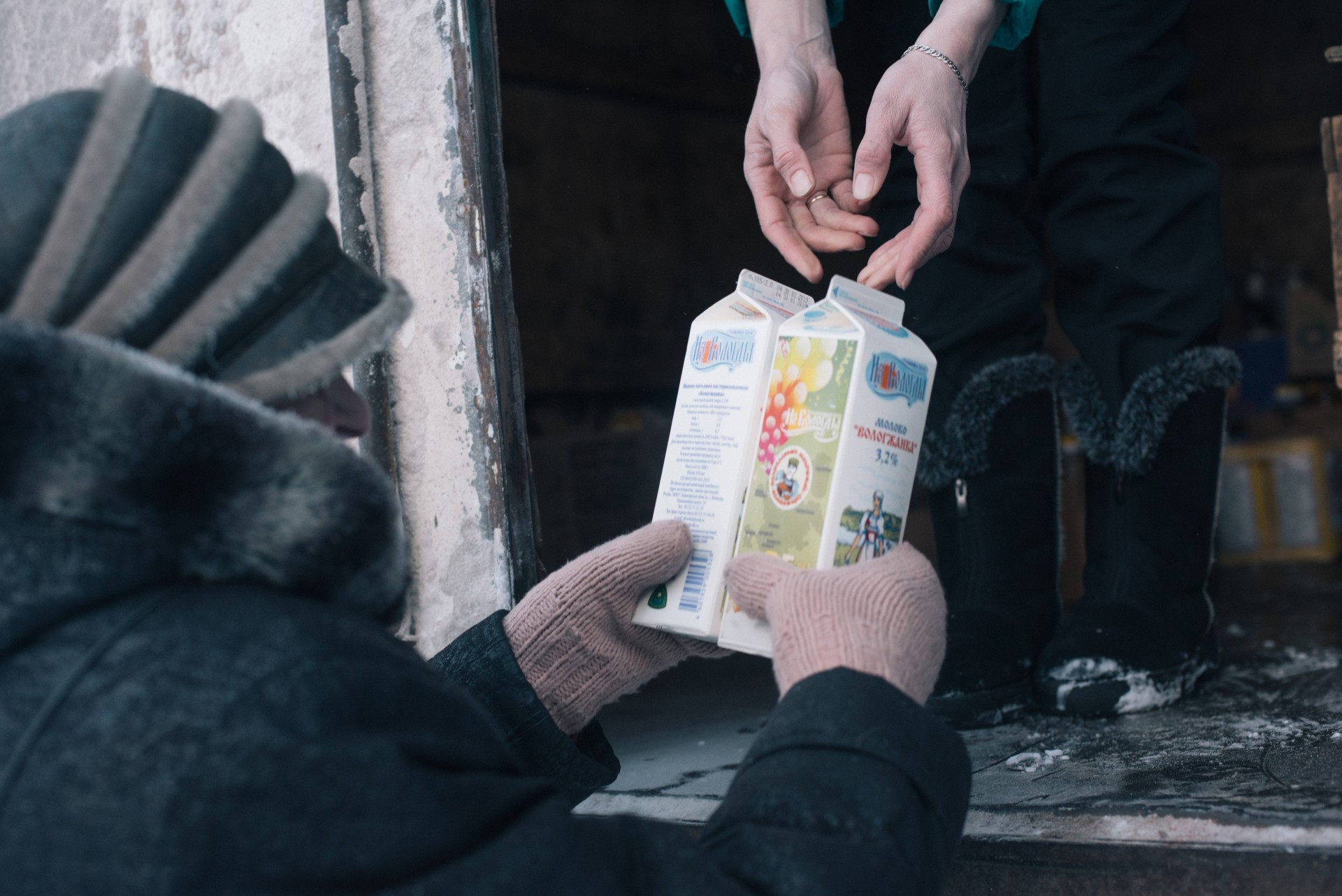
2019. Mobile grocery near Kurga village
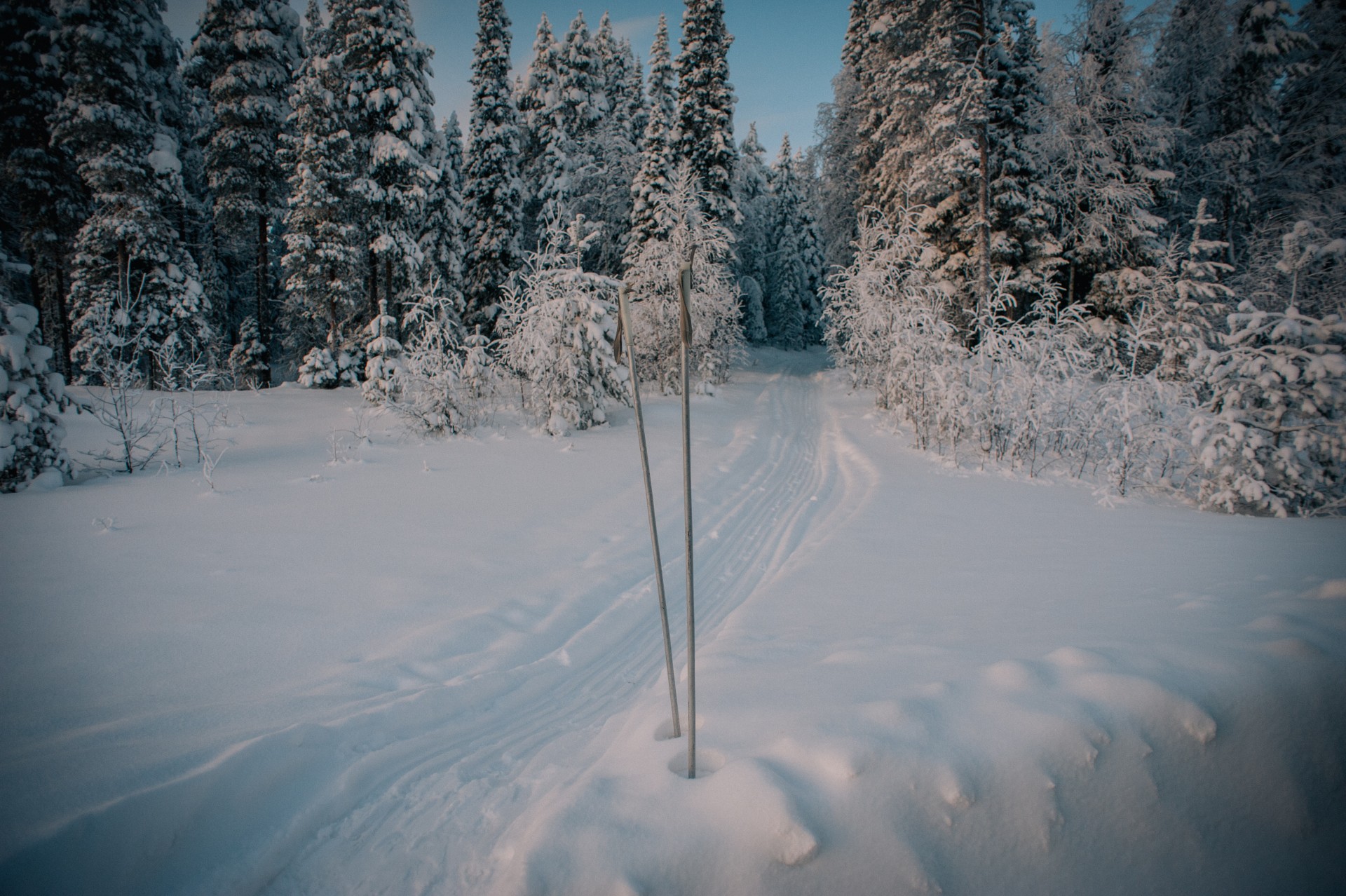
2019 From Turiya village to the highway, there is a kilometer of forest road covered with snow. The only resident of Turiya shows up on skies. He does not want to be photographed.
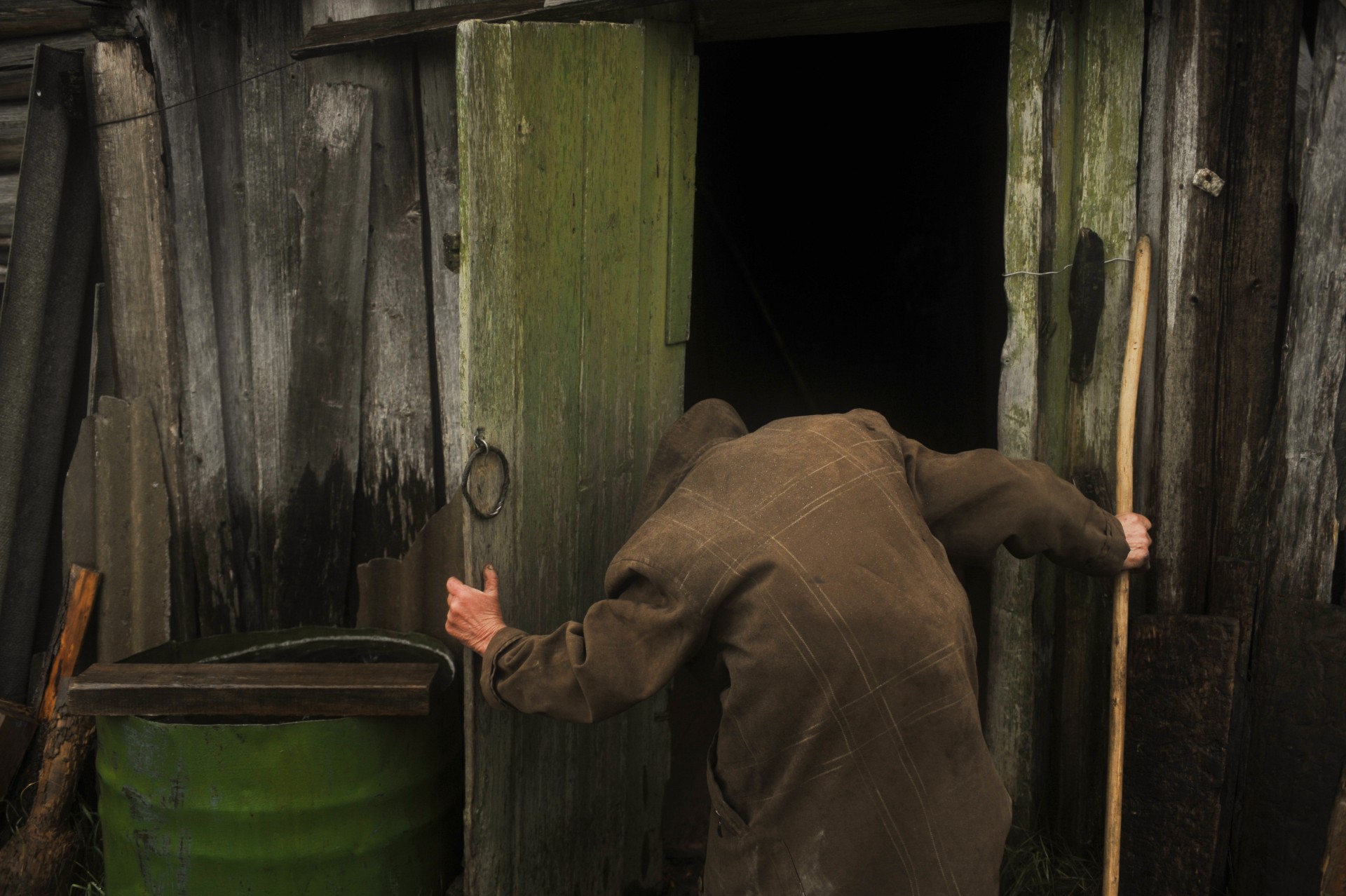
2011. Kochmogora village
The grocery truck doesn't enter Kochmogora anymore: the village is empty.
In Shasta, right next to the highway hunter Nikolai lives with his wife, and no one else. Thirty years ago, about two hundred families lived in this village.
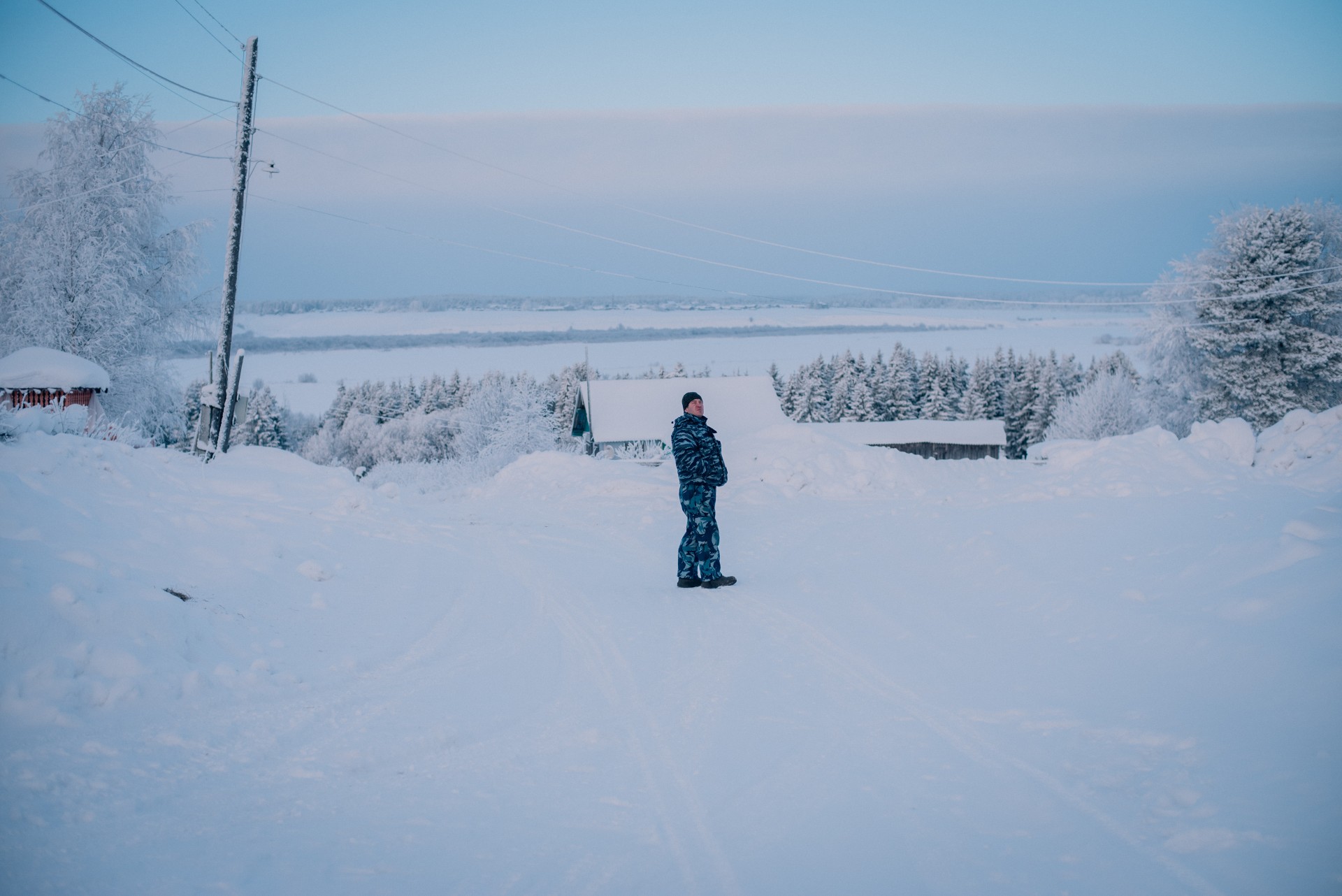
The last stop of the mobile grocery in Kusogora village is the longest one. The village is located on a hill high above Pinega river. The truck driver, Nickolay, a hefty good-natured person, walks away from the truck and stares intently across the river, then turns to me. “There it is, my village, Chakola. I come from there. I can even see my house. Ah, but I'm not visiting Chakola anymore. I just stand here and look from afar. It's a pity…"
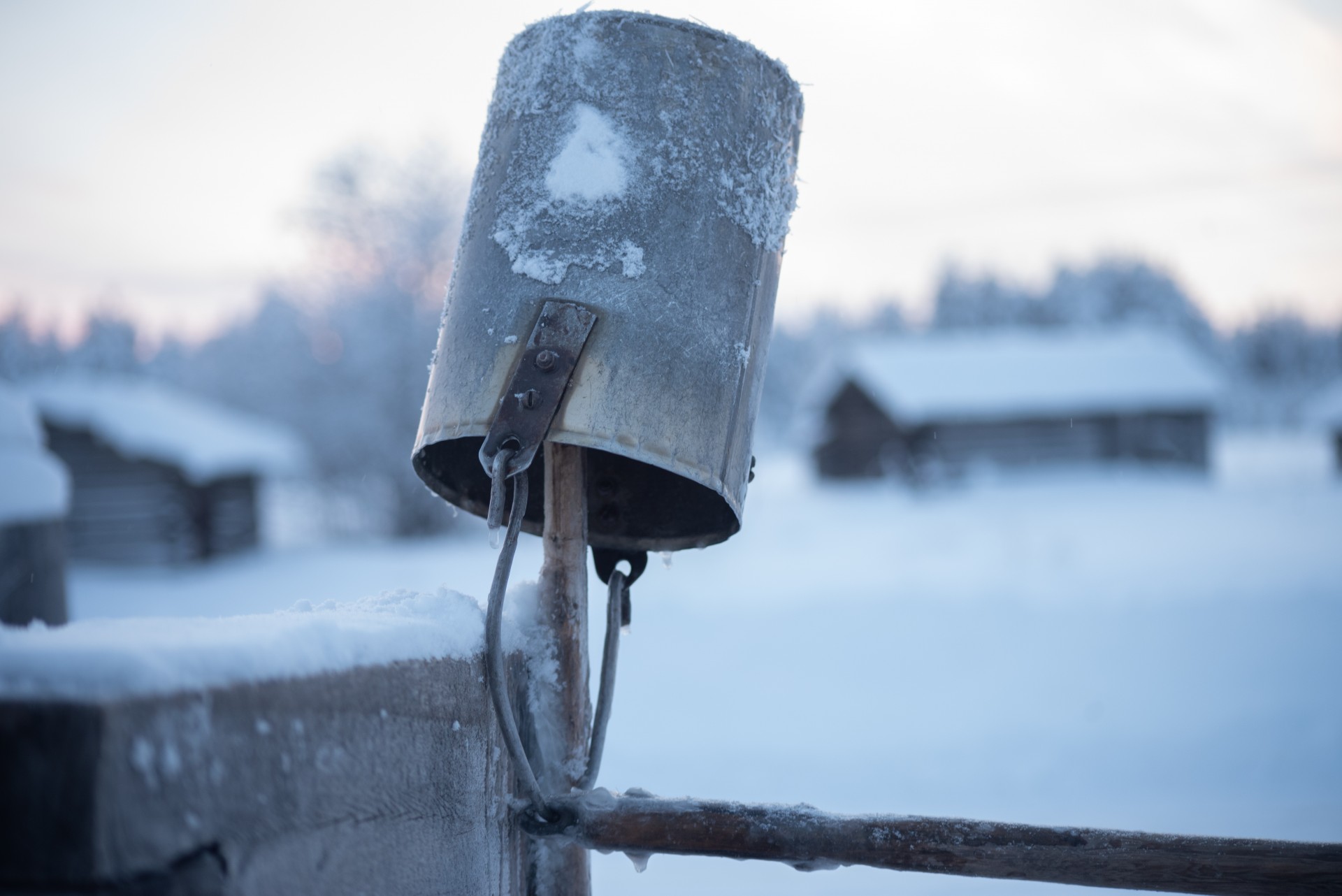
2019. Cheshegora village. A well
Something's wrong with the water in Cheshegora village. No one knows exactly what happened, but, according to the locals, “feces got into the water”, and for last several years it is unsuitable for drinking.
Mikhail doesn't believe in the rumors about water. He checks its quality with a nut on a rope. If the nut makes circles as it moves, it's safe to drink it. If the nut goes across, just don't drink.
Mikhail was born and spent his childhood in Cheshegora, then he moved across the river to Pyrinem village, and recently retired and returned to Cheshegora. "It's just easier to live here. At least you can get to the district center". Bus service to any of the villages was closed three years ago, and one can only get to Cheshegora by a private car, but Pyrinem is also across the river. There are no roads on that side, and it's much more difficult to get there.
Mikhail was born and spent his childhood in Cheshegora, then he moved across the river to Pyrinem village, and recently retired and returned to Cheshegora. "It's just easier to live here. At least you can get to the district center". Bus service to any of the villages was closed three years ago, and one can only get to Cheshegora by a private car, but Pyrinem is also across the river. There are no roads on that side, and it's much more difficult to get there.
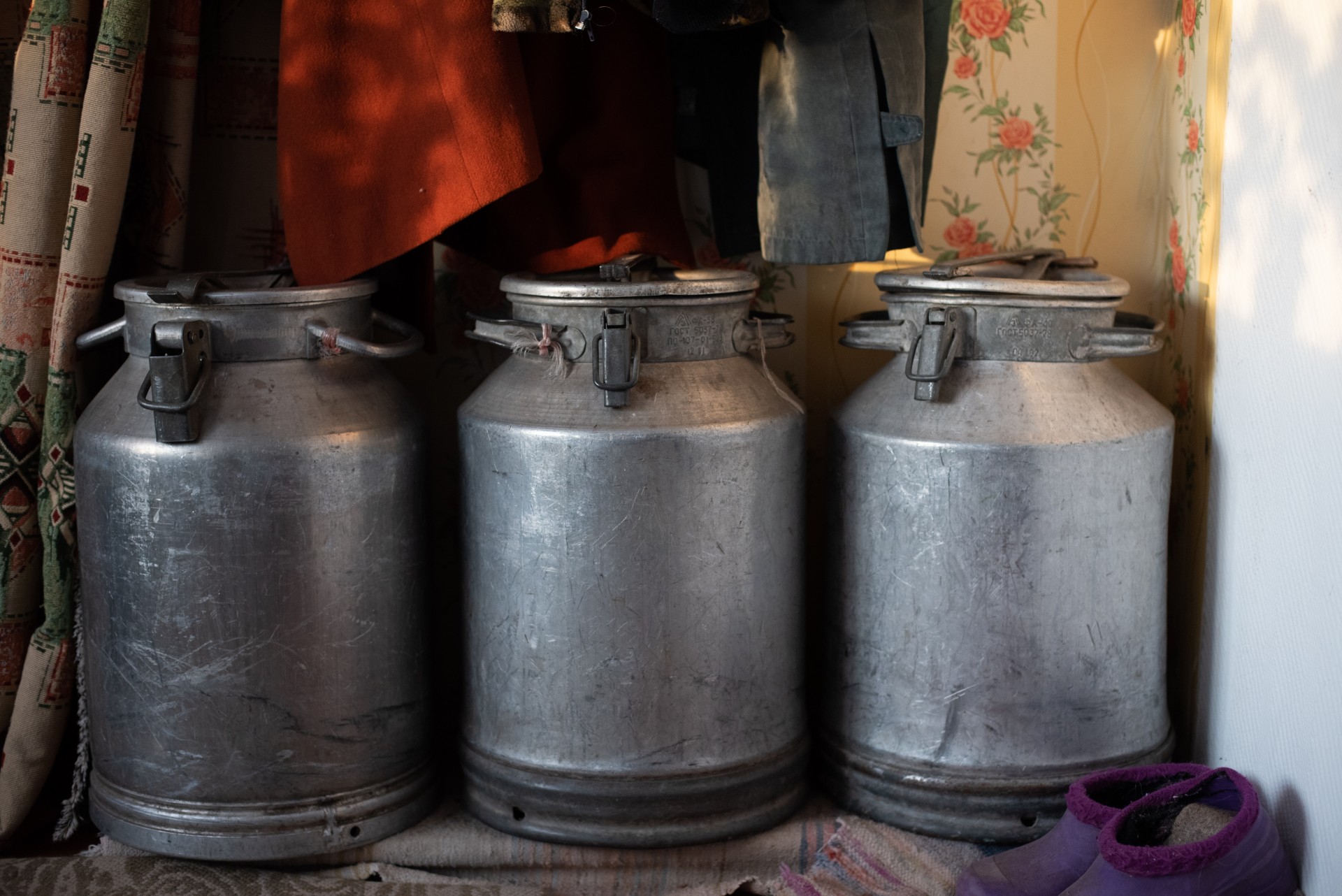
2019. Cheshegora village. Water reserve for a month at Rimma Petrovna's house
Rimma Petrovna and most of her neighbors don't drink from the well. Once a month her grandchildren bring her water in cans. Some villagers get water from Pinega, but it's quite a walk. The river is about 2 kilometers away from houses, and the banks are high and steep. Everyone invents their own workaround.
Inventing workarounds, surviving, perceiving extreme conditions as the norm has long become a habit here. As summer comes, preparations for winter begin. First of all, you need firewood. A woodpile should contain enough firewood for the next two winters at least, that's a rule. Then you go to the forest and harvest berries, mushrooms and herbs. You patch the house and bath. You grow potatoes, cabbages and carrots in your garden. Each winter is a circumnavigation. You need to prepare seriously to survive it without loss.
Inventing workarounds, surviving, perceiving extreme conditions as the norm has long become a habit here. As summer comes, preparations for winter begin. First of all, you need firewood. A woodpile should contain enough firewood for the next two winters at least, that's a rule. Then you go to the forest and harvest berries, mushrooms and herbs. You patch the house and bath. You grow potatoes, cabbages and carrots in your garden. Each winter is a circumnavigation. You need to prepare seriously to survive it without loss.
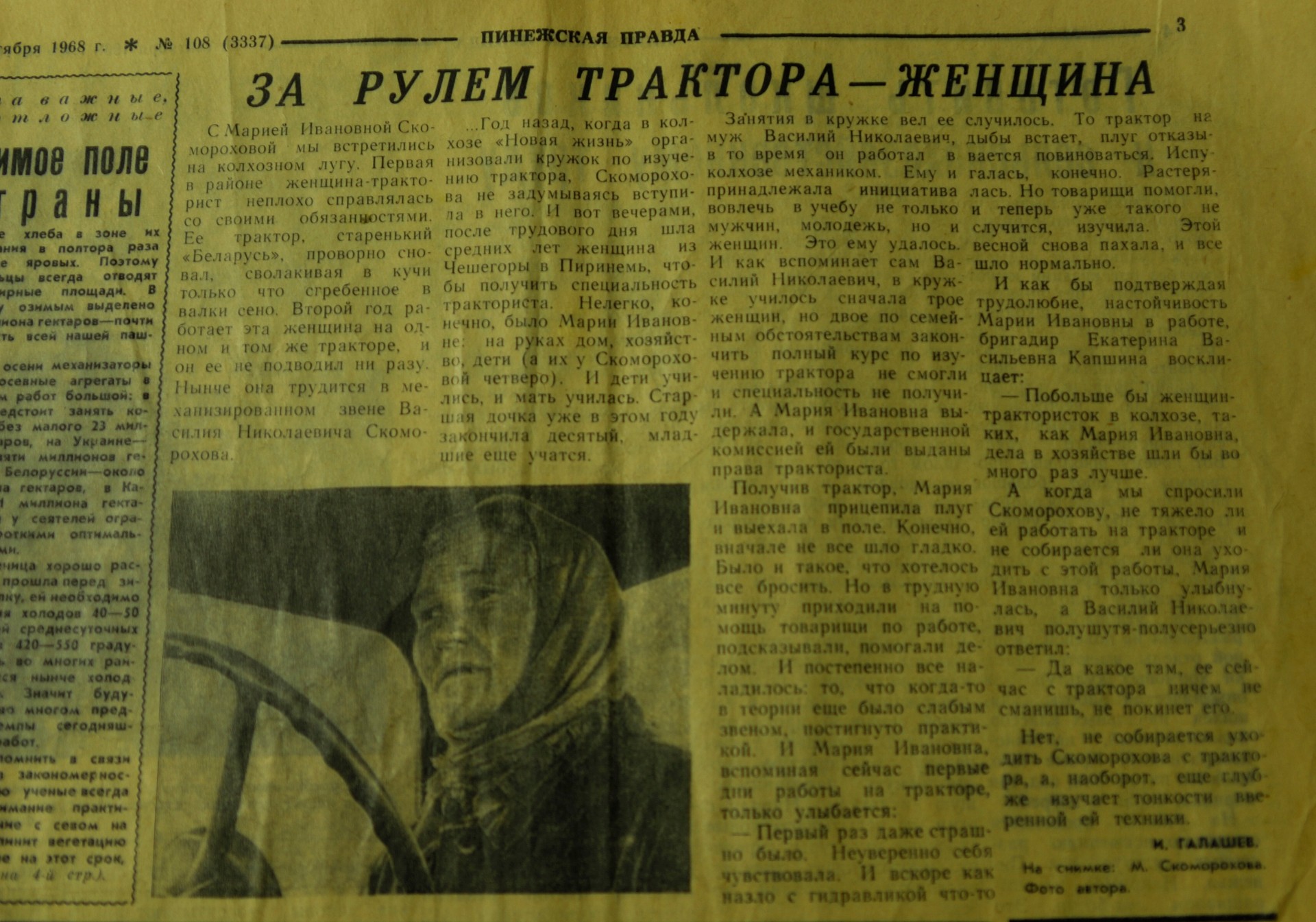
1968. "The Truth of Pinega" newspaper telling about Maria Skomorohova, a female tractor driver
Maria Ivanovna Skomorokhova. This tractor, described in the newspaper from 1968, became her curse. "My husband Vasily was driving this tractor across a steep slope. He was a very experienced driver but he flipped the machine and it crushed Vasily to death. Right after we buried him, the collective farm director said: We cannot give you another tractor, Maria. You gonna keep working on this one. Well, I cried, of course, but I got behind the wheel and began to work, what could I do".
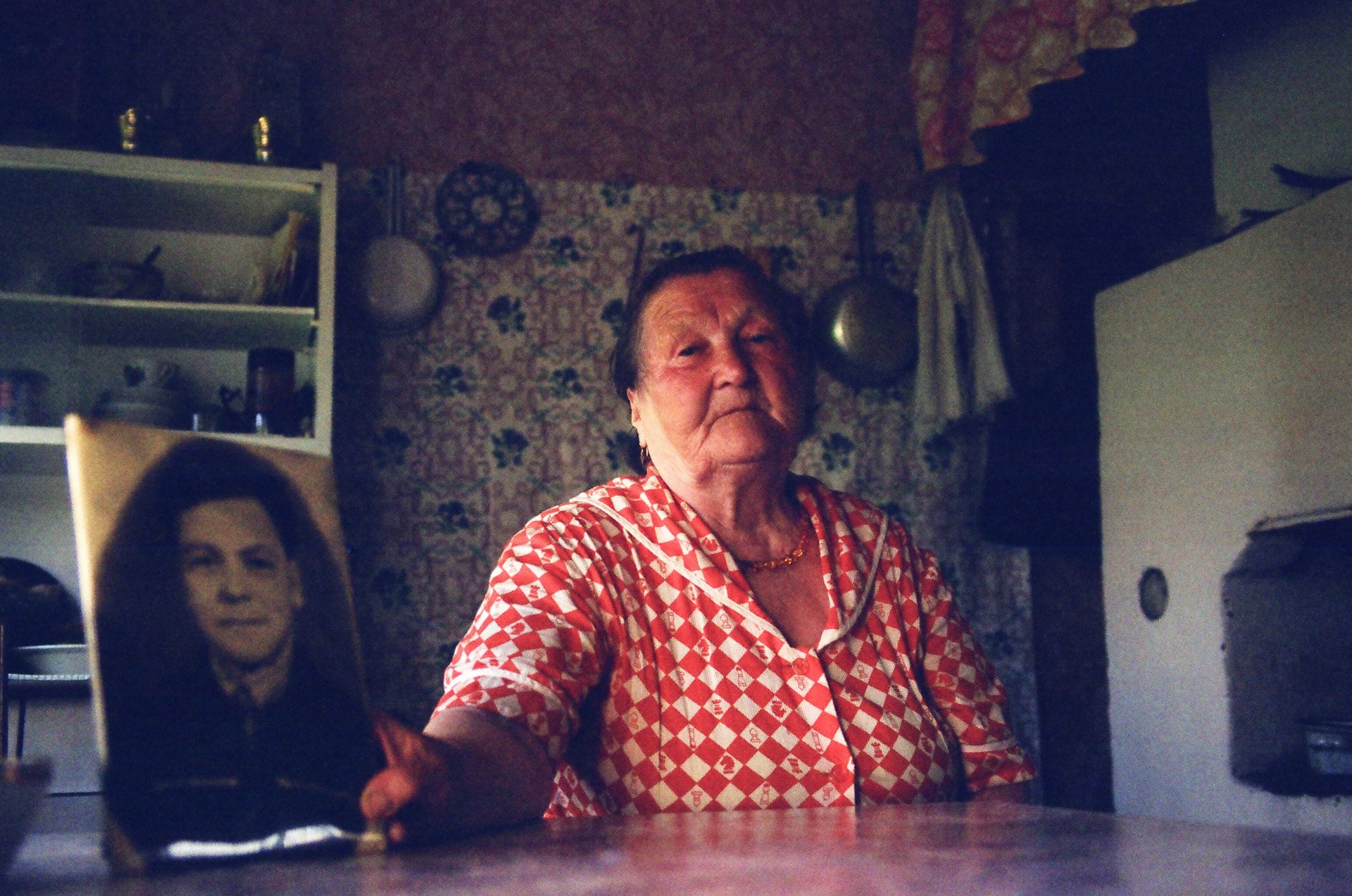
2008. Cheshegora village. Maria Skomorohova holding a portrait of her late husband
How many battles were there in the collective farms: for harvest, for workers, for every spot of land that can be plowed. Hectares of collective farm fields surrounded each village. There were stockyards, tractors and harvesters. Everything is abandoned. The whole Pinega district, which is 1.5 times larger than Israel, has three farms. It would seem logical to support these farms by distributing their products through the regional chains, but all tenders get won by powerful Vologda food enterprises. Local farmers are left with an option to go from door to door and offer milk to the villagers. This doesn't work well simply because Vologda milk is cheaper.
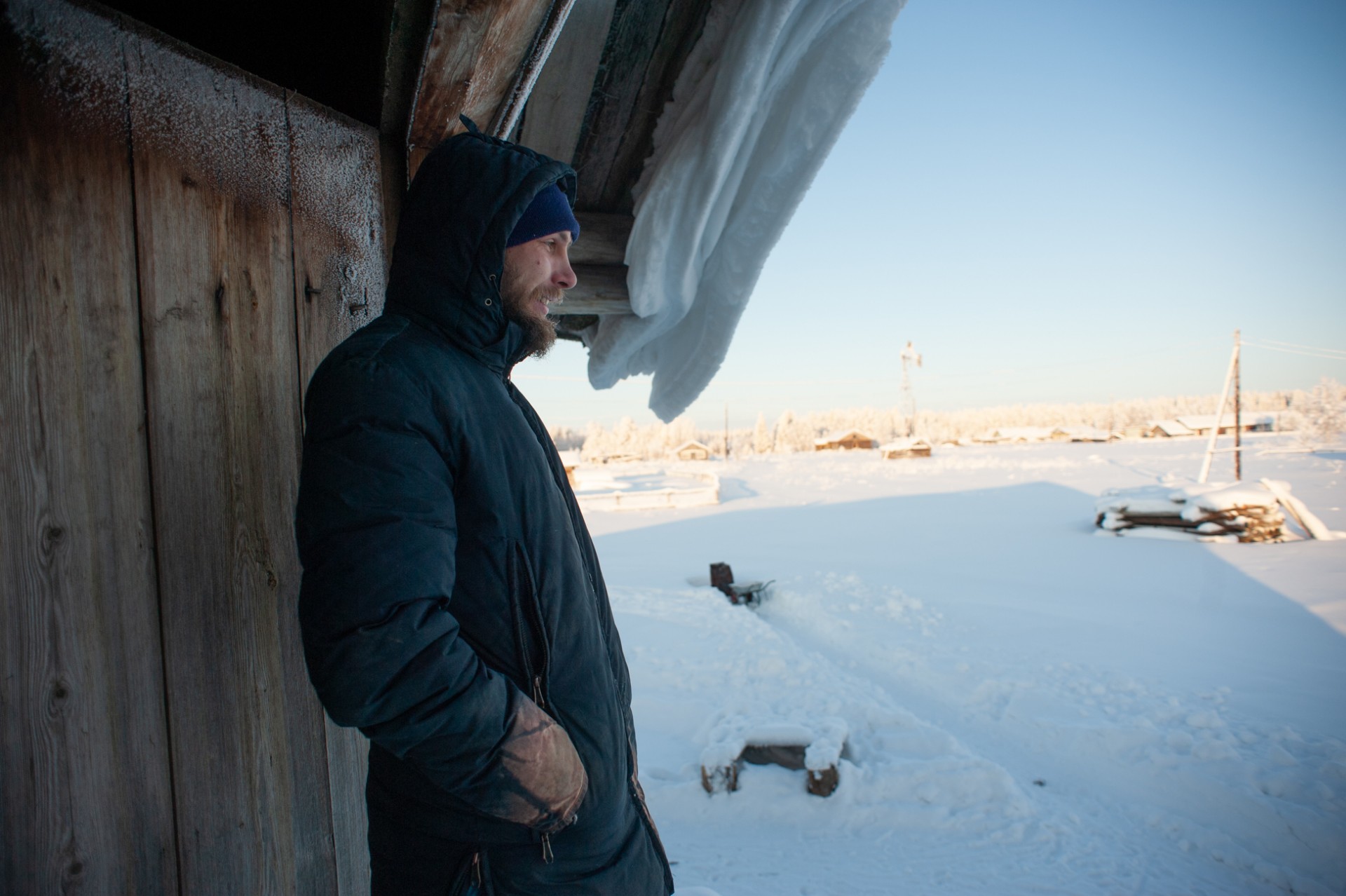
2019. Bereznik village. Kostya, farmer
Each farmer on Pinega is a special case. Kostya is a special case, too. He is a young enthusiast who moved several years ago from St. Petersburg to one of the most remote villages of Pinega district to become a farmer.
Bereznik village where Kostya settled doesn't have roads accessible by car. He himself moves around the area on foot or on horseback. The house he lives in requires a complete renovation.
So what brought him with a wife and a baby to these harsh lands which every young local is trying to flee? “I realized in the city that I was living someone else's life. I wanted to wake up each morning with the anticipation of a new day. I wanted to do whatever I feel right doing. I have it here. And living here is not as difficult as it seems!”
Kostya is a modern guy. He orders homeware online from China (“If I place a cellphone right under the ceiling it gets some signal...”). With the help of social networks he was hoping to gather in St. Petersburg a group of like-minded people who would leave everything behind and join him in the wilderness. “When the time came to act, they all disappeared” Kostya complains.

The lack of communication is his only complaint. It's not easy for him to get understood by local people. He has issues with those who get back to their village for summer vacations. They consider themselves the true owners of these places and are not happy with Kostya's initiatives. At the same time, those who live in the village all year round willingly help without taking anything in return. They also express their concerns as they see how fresh he is to rural life: “He didn’t prepare enough firewood. He doesn't want to repair the hay ramp... How is he going to survive here?”
Children who were taken away from these villages by their parents and now reside in towns have never been near a cow, and Kostya-the-City-Boy is going to hold farming workshops to get them acquainted with the life they have unwittingly lost.
Children who were taken away from these villages by their parents and now reside in towns have never been near a cow, and Kostya-the-City-Boy is going to hold farming workshops to get them acquainted with the life they have unwittingly lost.
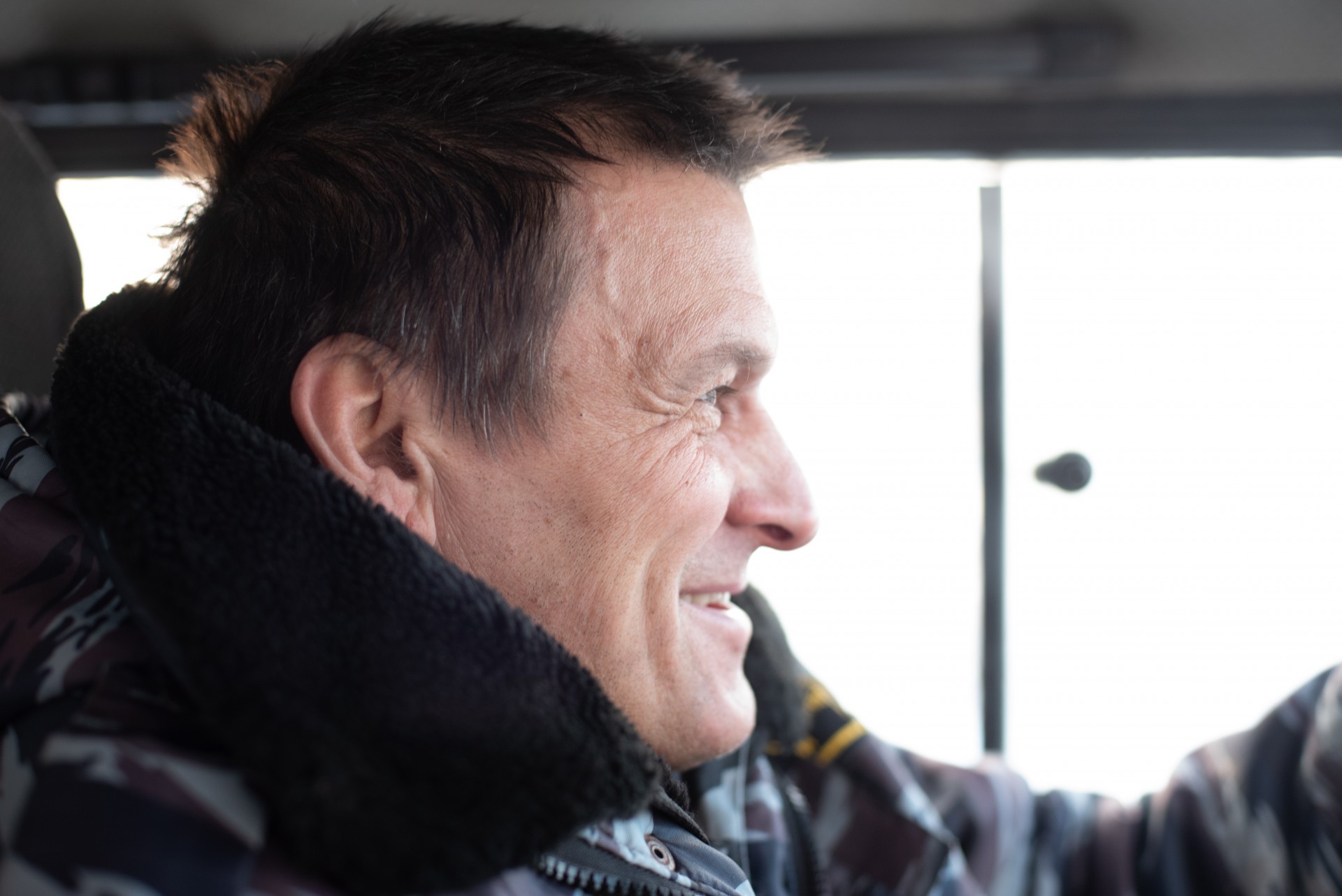
2019. Leonid
Leonid Skomorokhov is Kostya's closest friend among the locals. He helps him all the time. "There's just one problem: it is impossible to thank him," says Kostya. "It's ridiculous! One day I poured him a glass of milk, so the next day he tried to pay me for it!" Leonid lives in the neighboring village of Shotogorka and works in the district center as a cargo guard at the Karpogory railway station. Leonid took me to Kostya. The road was so bad that even his UAZ 4x4 got stuck at times. It was winter time. In spring and autumn the road becomes a mess. In spring and autumn Leonid walks to his workplace on foot. It's 35 kilometers one way. At 4am he leaves the house to show up at 8am on the spot.
Leonid is a working pensioner. He used to be a professional hunter.
Leonid is a working pensioner. He used to be a professional hunter.
We are crawling through the forest in his UAZ. Furiously spinning the wheel in an attempt to keep the car in a rut, he manages to notice what kind of animal left a footprint on the snow and what kind of bird is sitting on the top of a pine tree half a kilometer away.
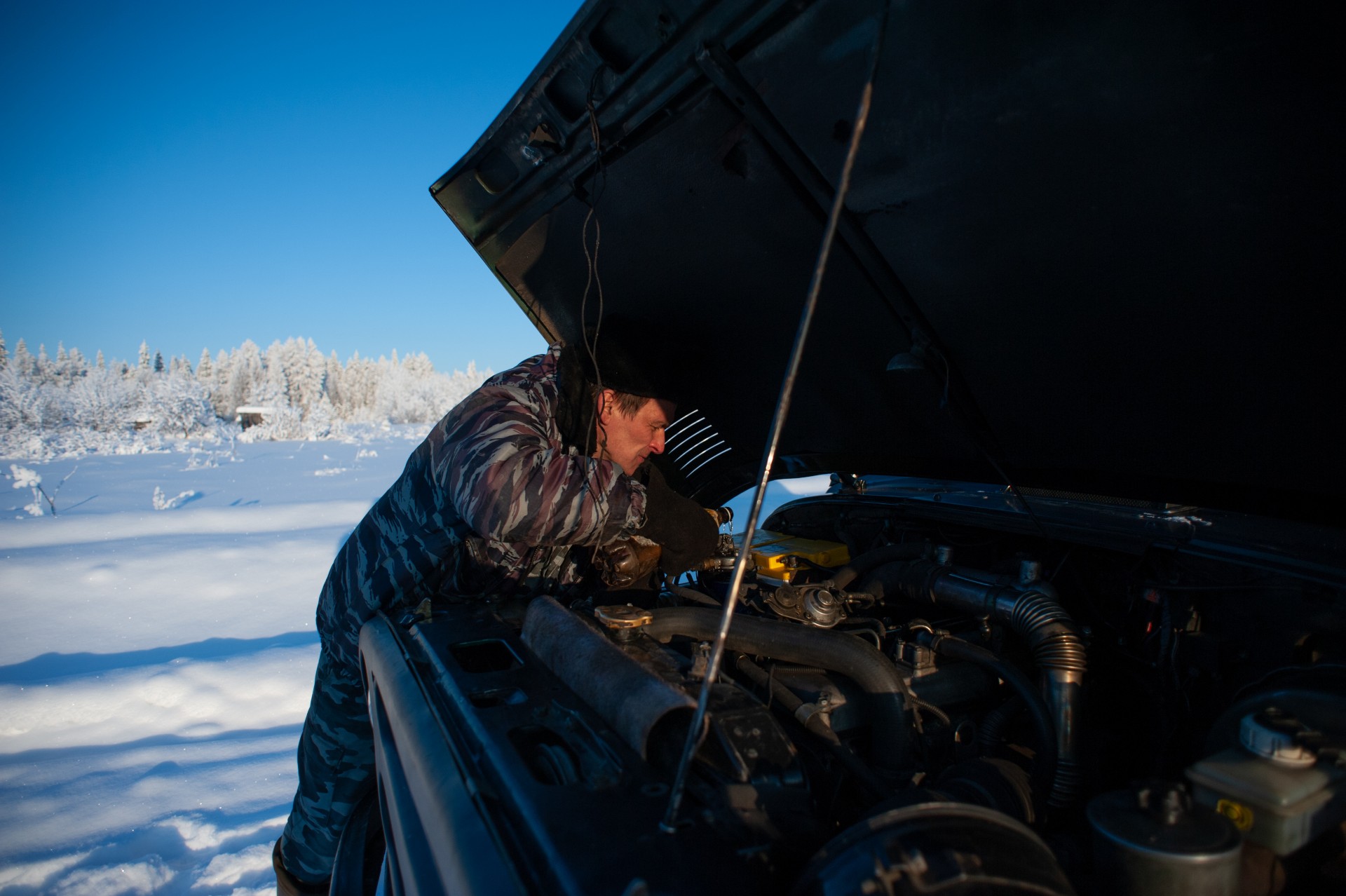
2019. Leonid trying to fix his car
It's -35 Celcius outside. Suddenly the car stalls and stops. "It's because the fuel has frozen in the tank" says Leonid. Leonid warms up the tank with a burner, pours spare diesel from a plastic bottle directly into the filter, releases the air from the fuel system. For him, this is a routine caused by inappropriate winter fuel sold in the region.
We're alone in the midst of a vast field. The car will not start. There’s no way to get help, even the cellphone is useless here. I know all this, and I am completely calm. It’s not scary to stay in the freezing wilderness with Leonid. He gonna survive and will rescue others.
He lives alone. He built a bathhouse himself, renovated the stove himself, raised the leaning house himself. He was the only resident of his village who volunteered to help religious activists from Moscow patching up a local chapel. Although he himself is an atheist.
If all of a sudden he's caught up like it happened last summer, Leonid heads out to Sinyavino Heights near St. Petersburg with a search squad. They dig out from dirt the bodies of dead soldiers of World War II and bury them properly.
He lives alone. He built a bathhouse himself, renovated the stove himself, raised the leaning house himself. He was the only resident of his village who volunteered to help religious activists from Moscow patching up a local chapel. Although he himself is an atheist.
If all of a sudden he's caught up like it happened last summer, Leonid heads out to Sinyavino Heights near St. Petersburg with a search squad. They dig out from dirt the bodies of dead soldiers of World War II and bury them properly.
There is no way to get help in the north. But also there's nobody who would interfere. It has always been like this here, with the exception of seventy years of Soviet regime. Surviving is incredibly difficult, and what seems trivial to the locals is actually a daily feat. In the name of what? Maybe in the name of the birthplace, a family home, and ancestors who lived here for hundreds of years?
"Home" is going to be the topic of the next article from this series.
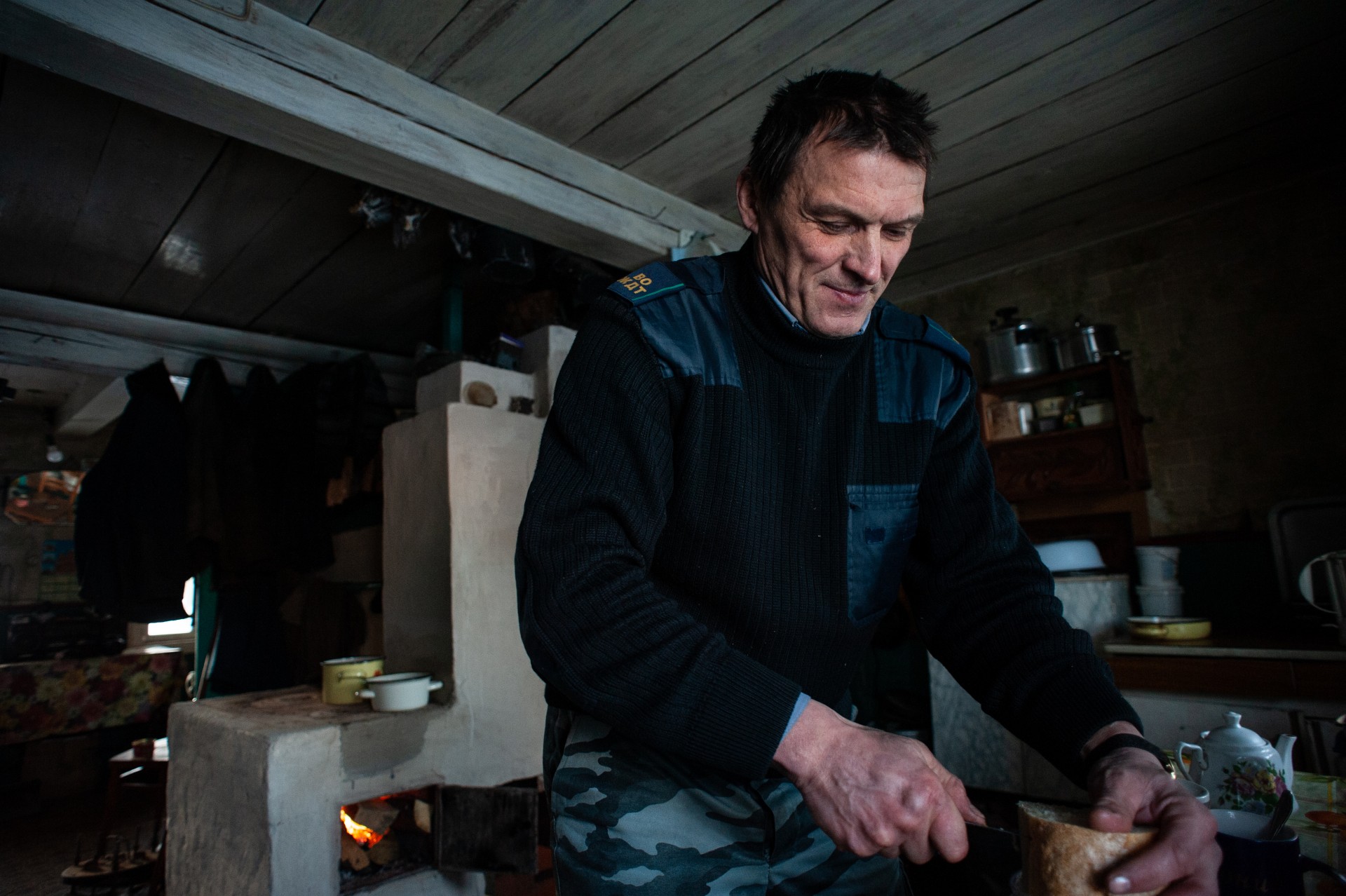
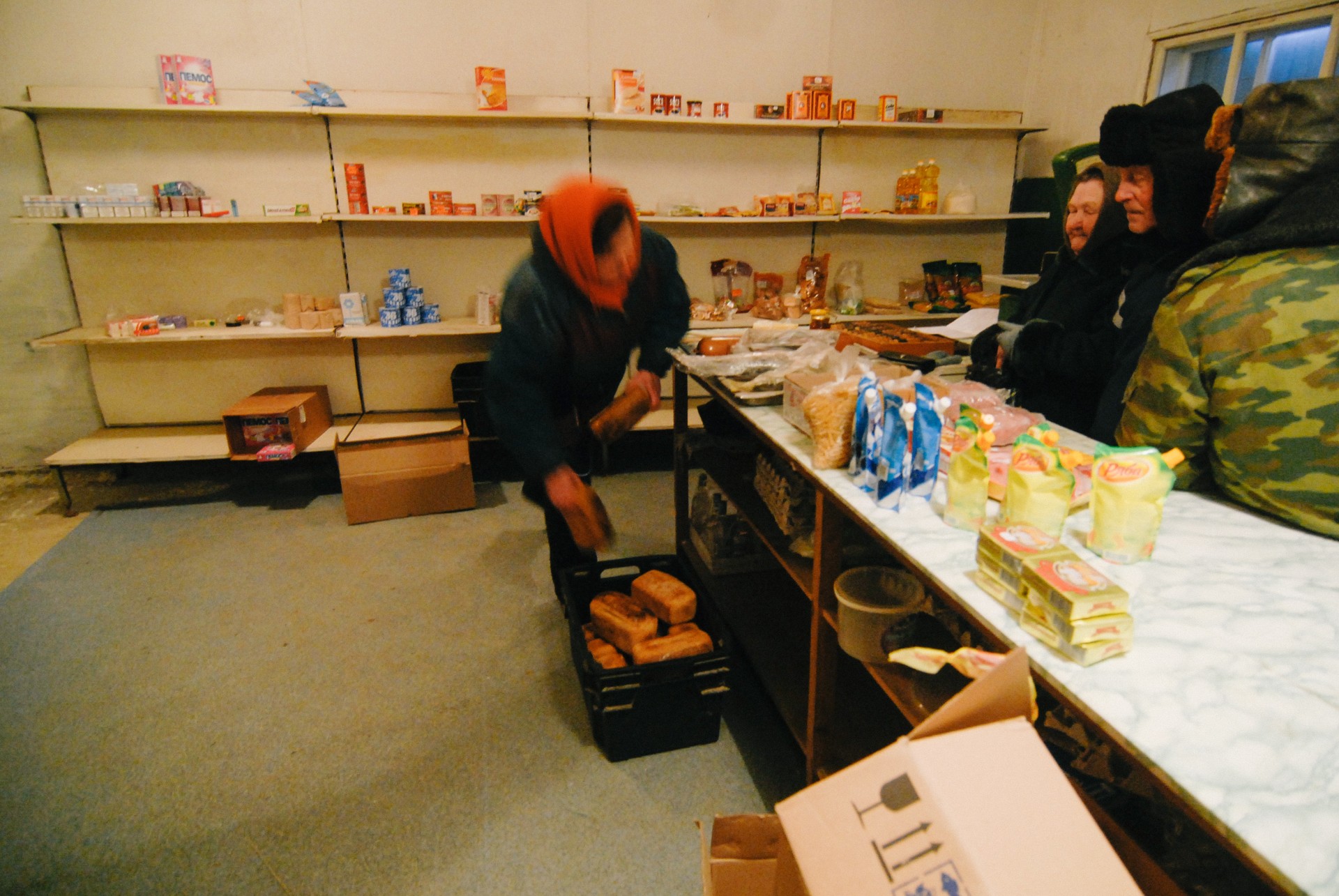
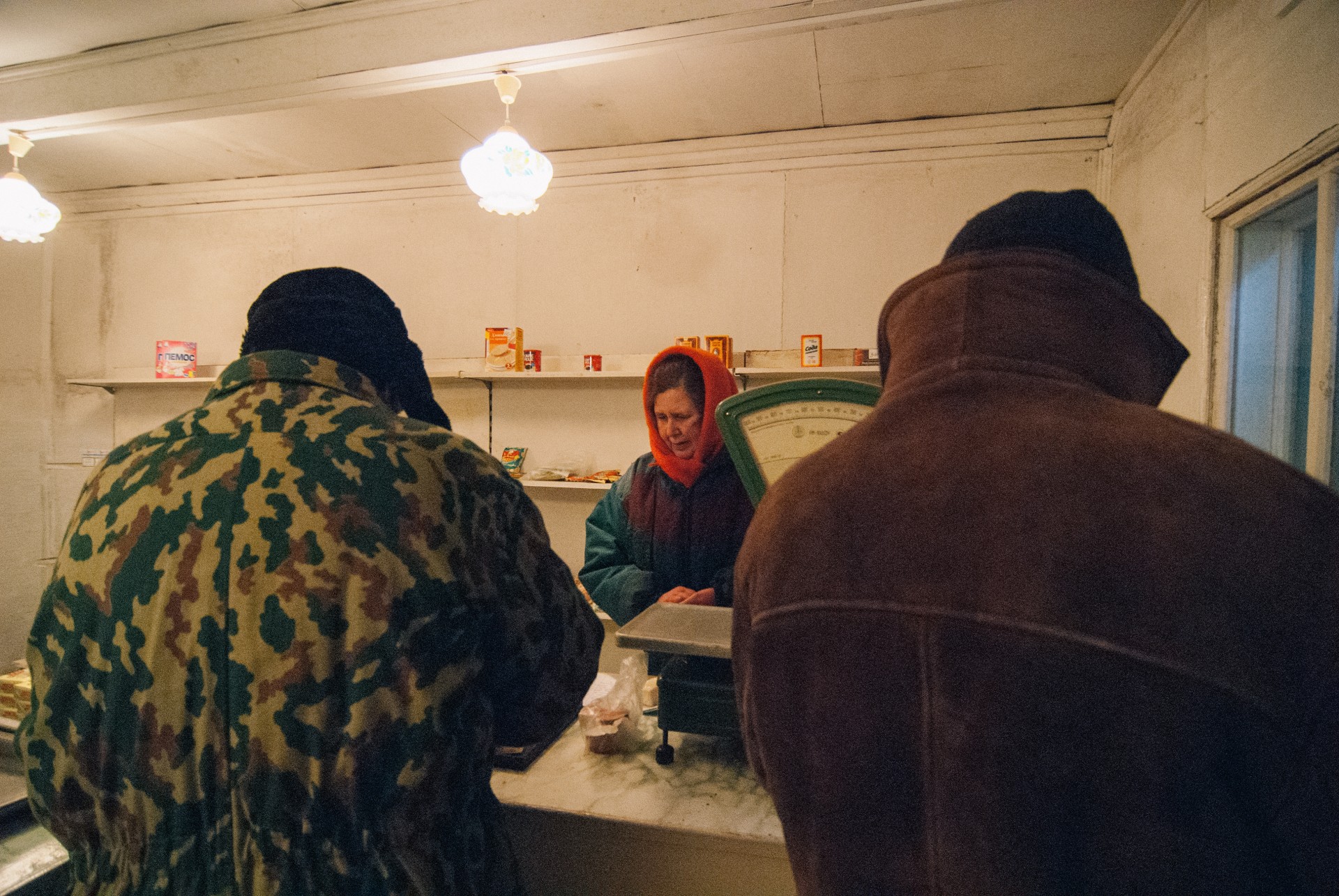
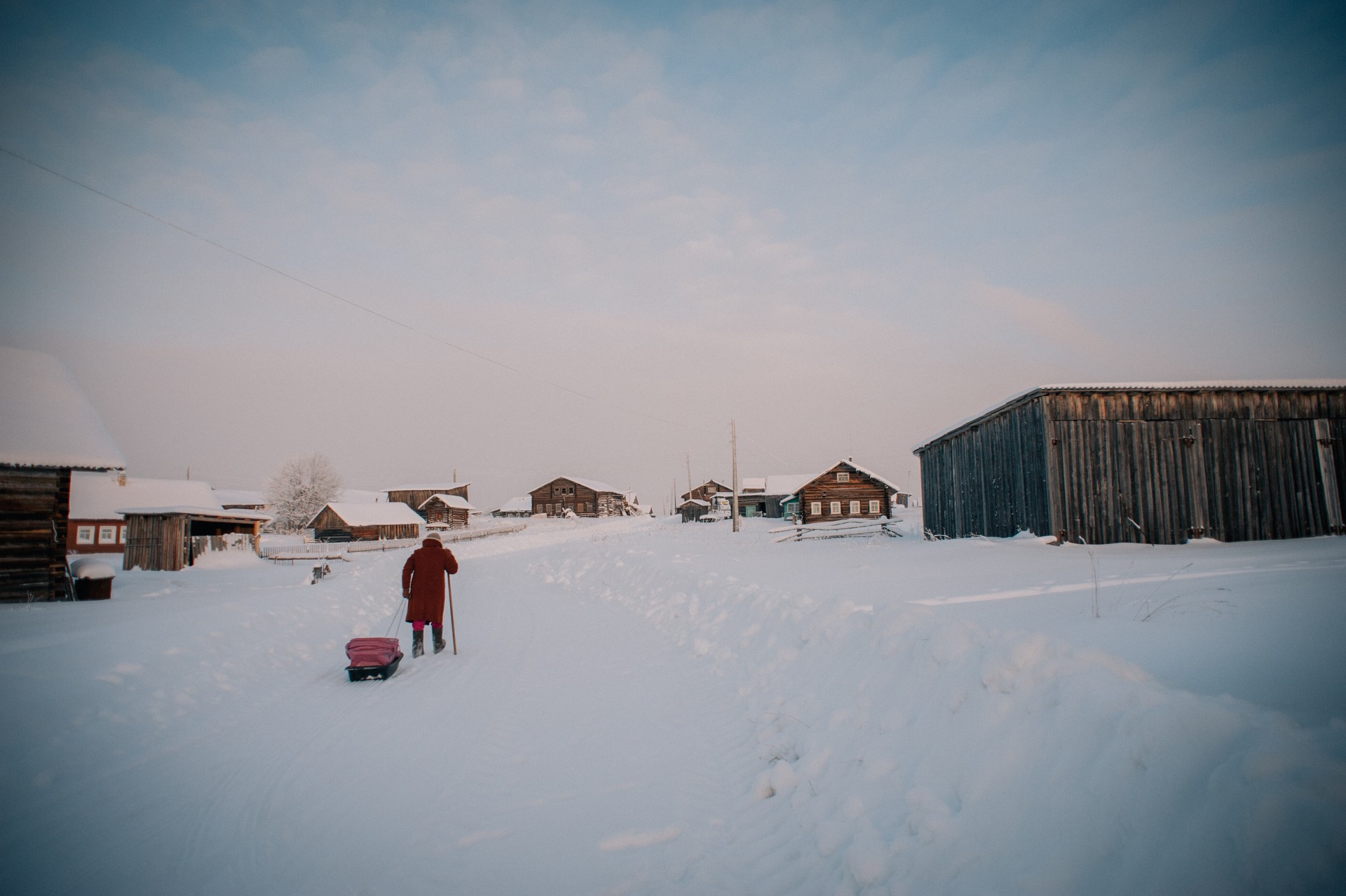
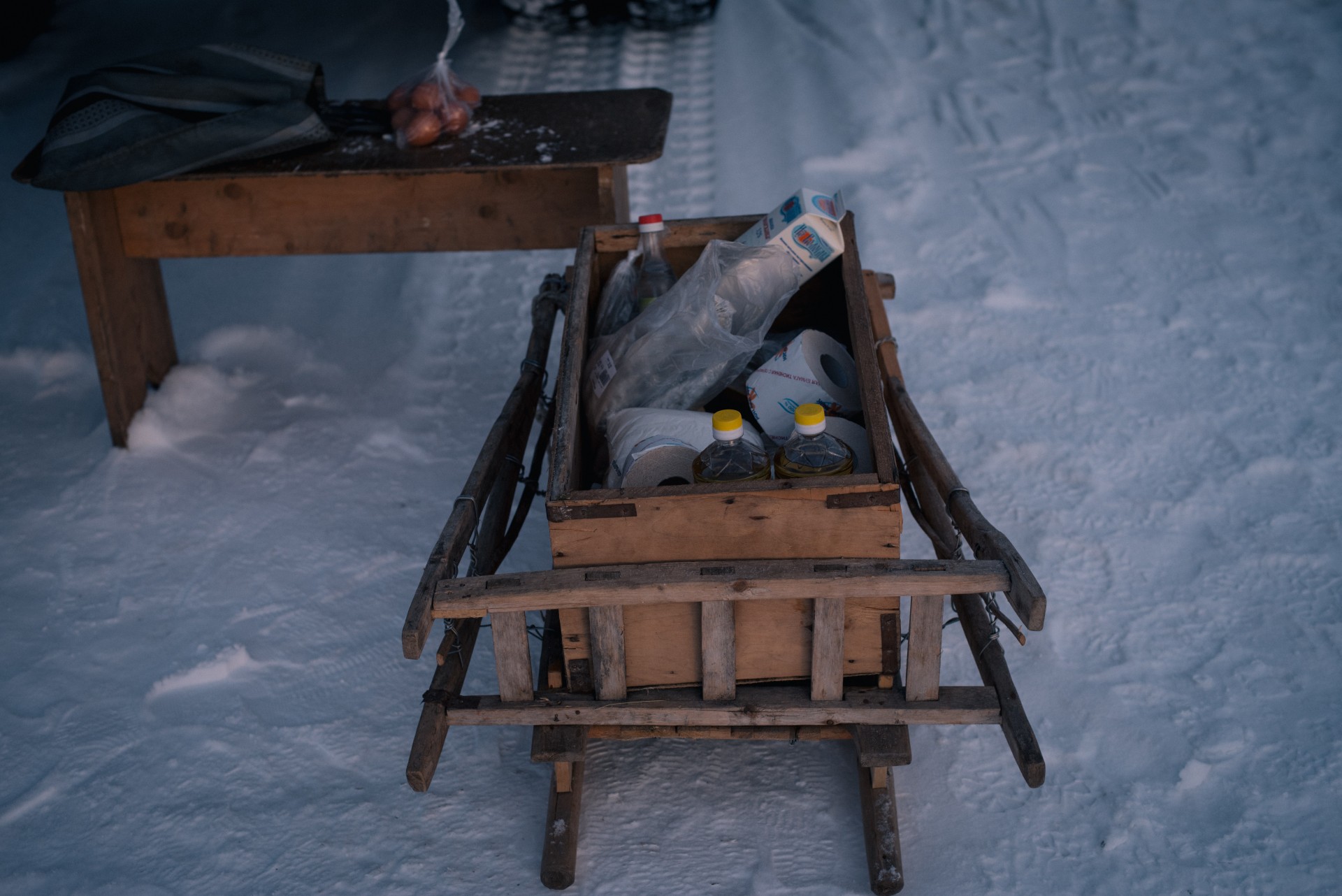
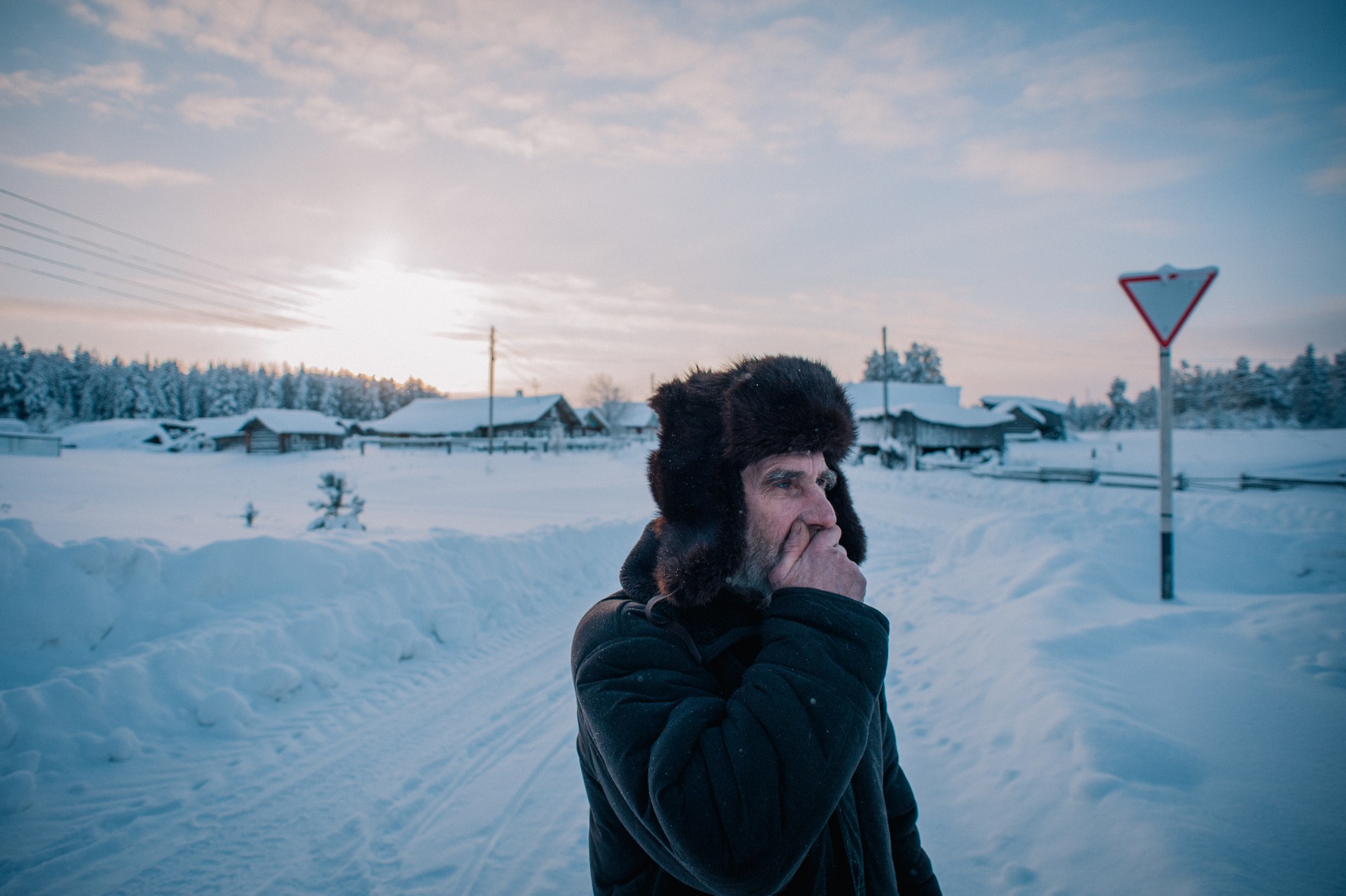
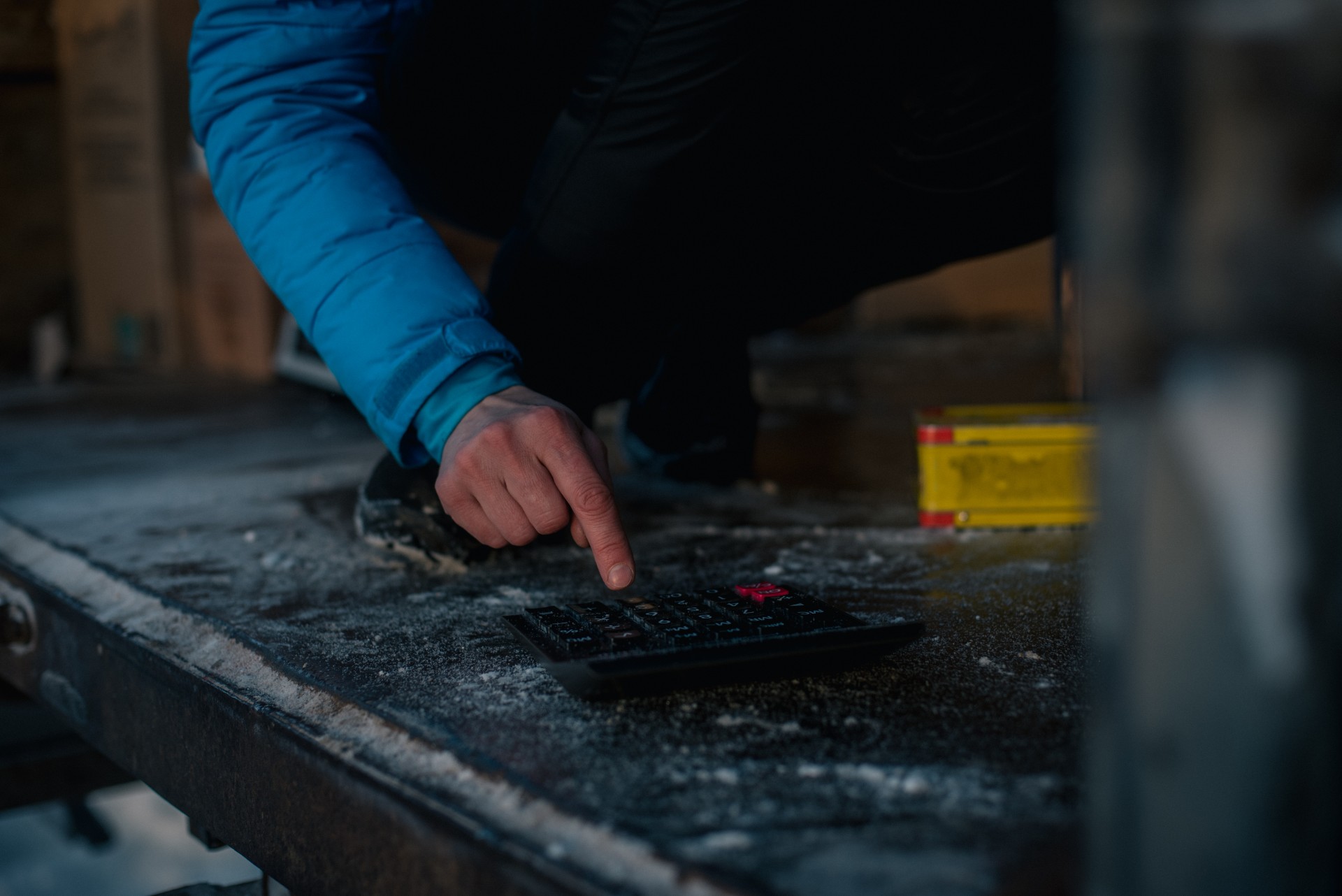
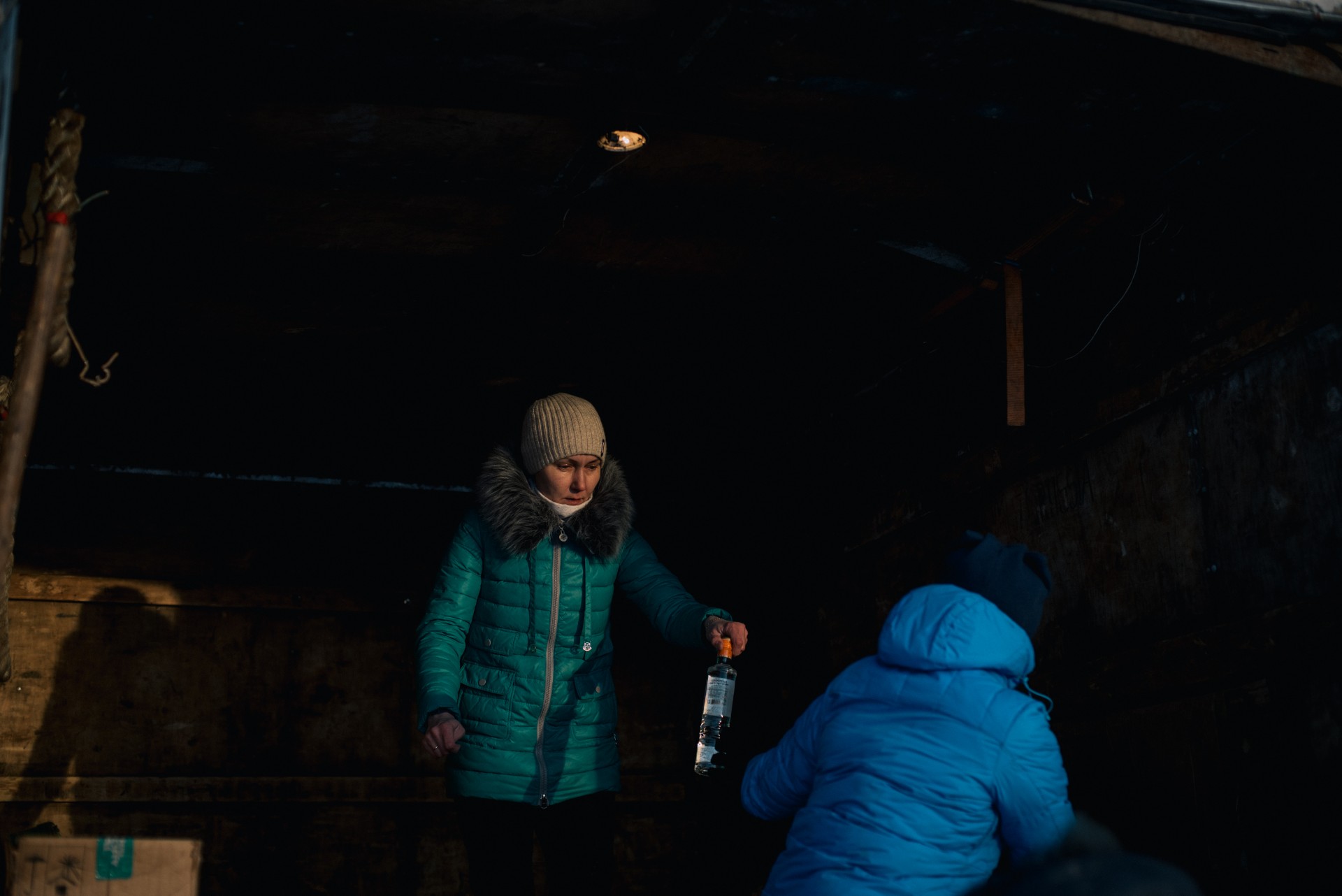
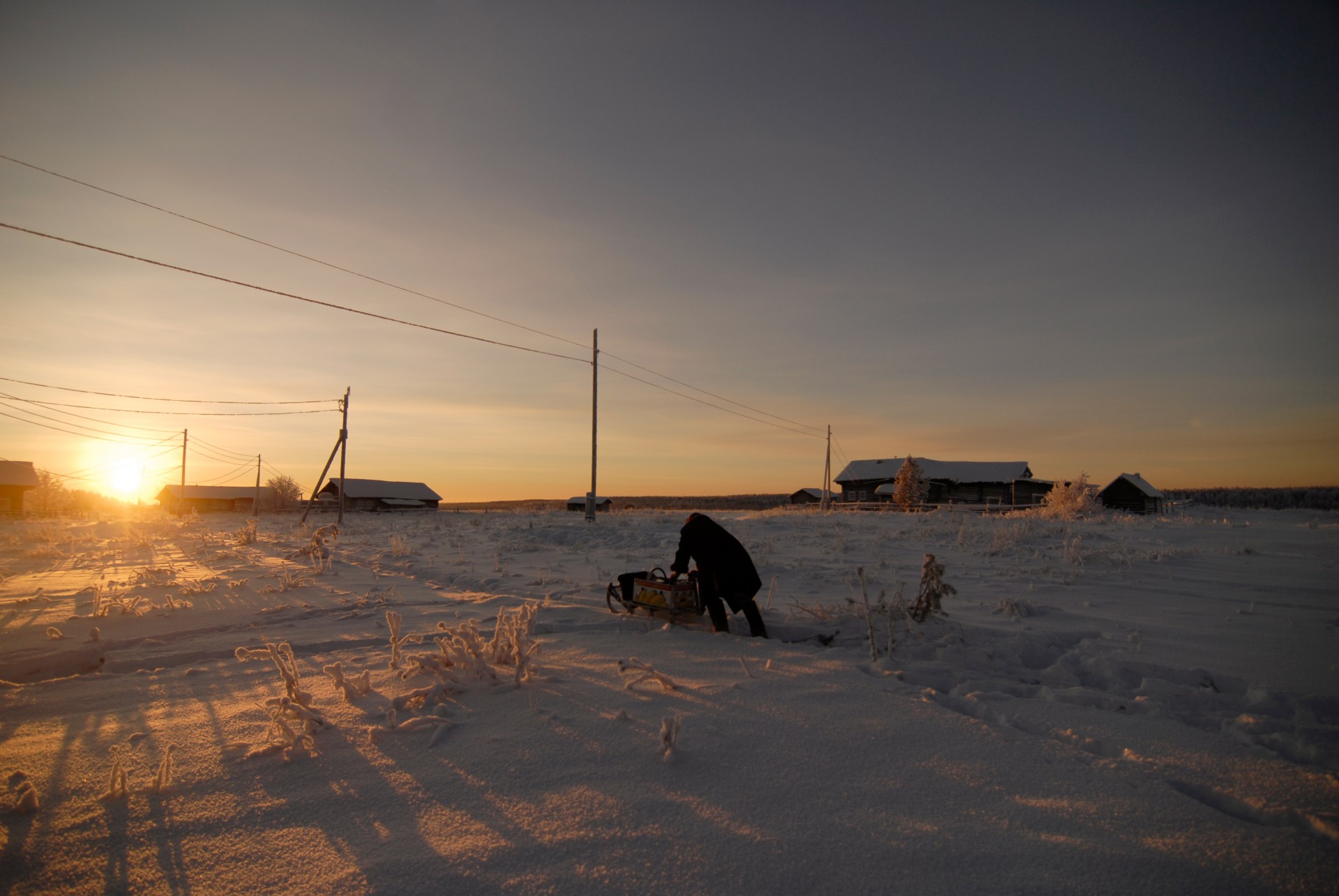
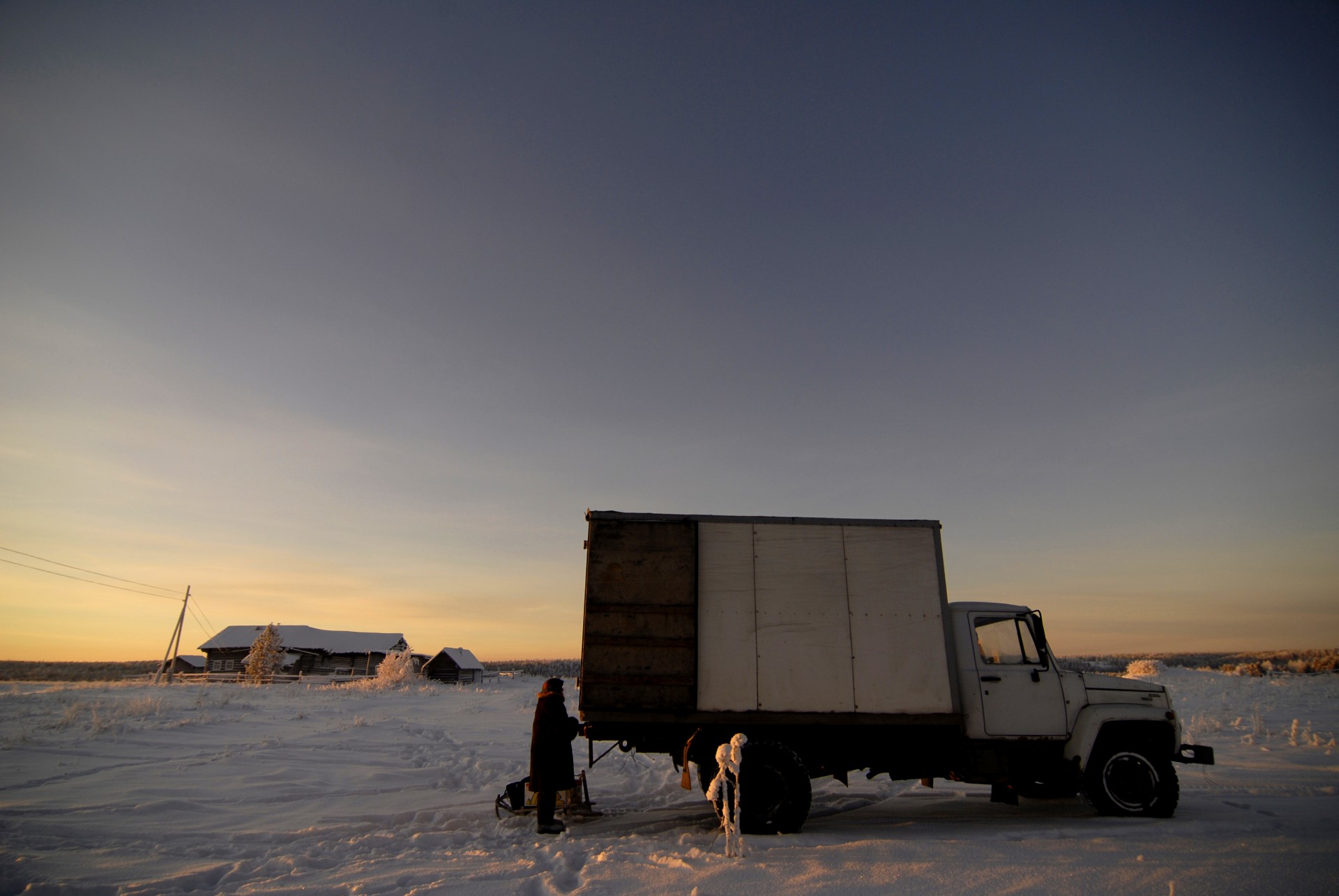
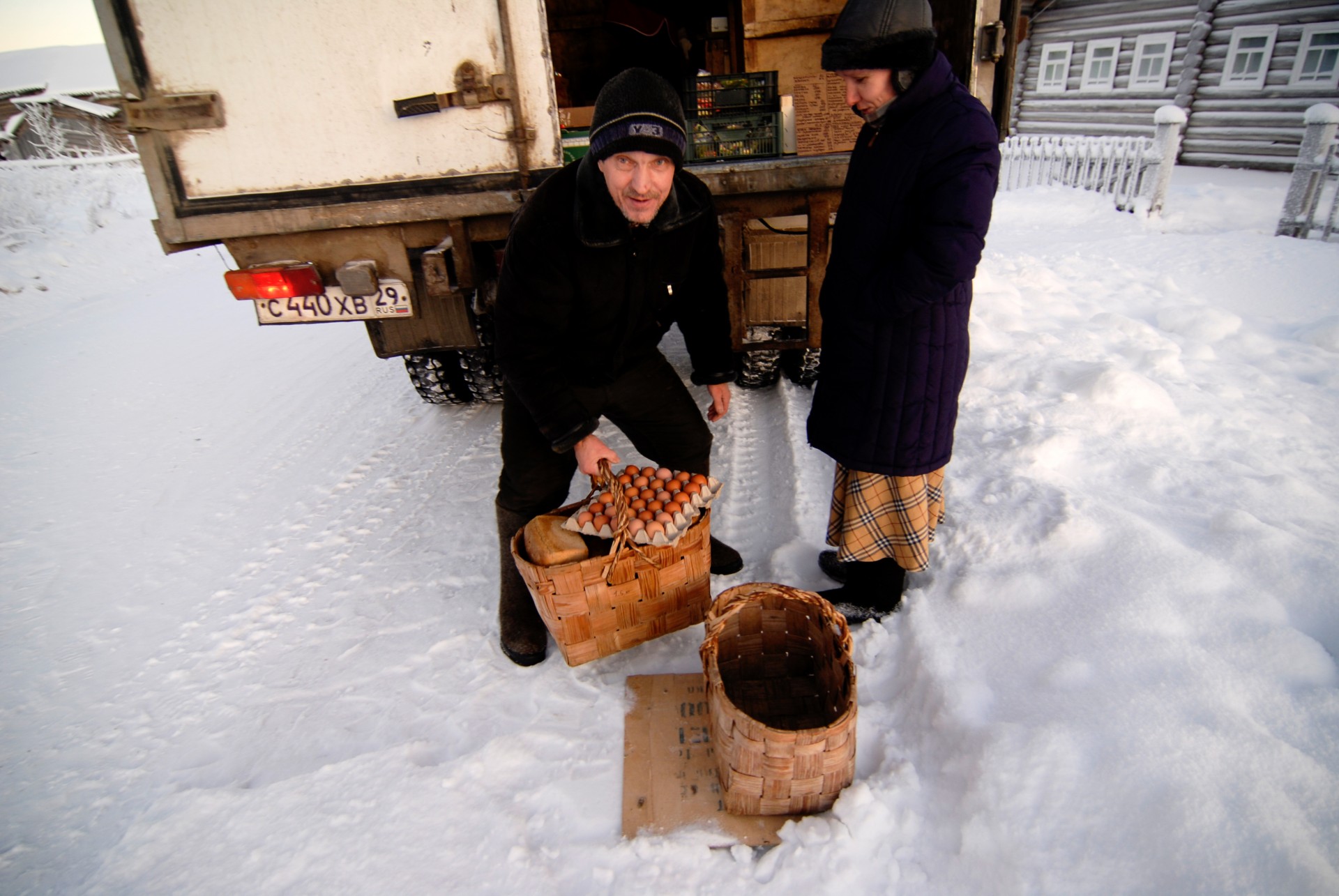
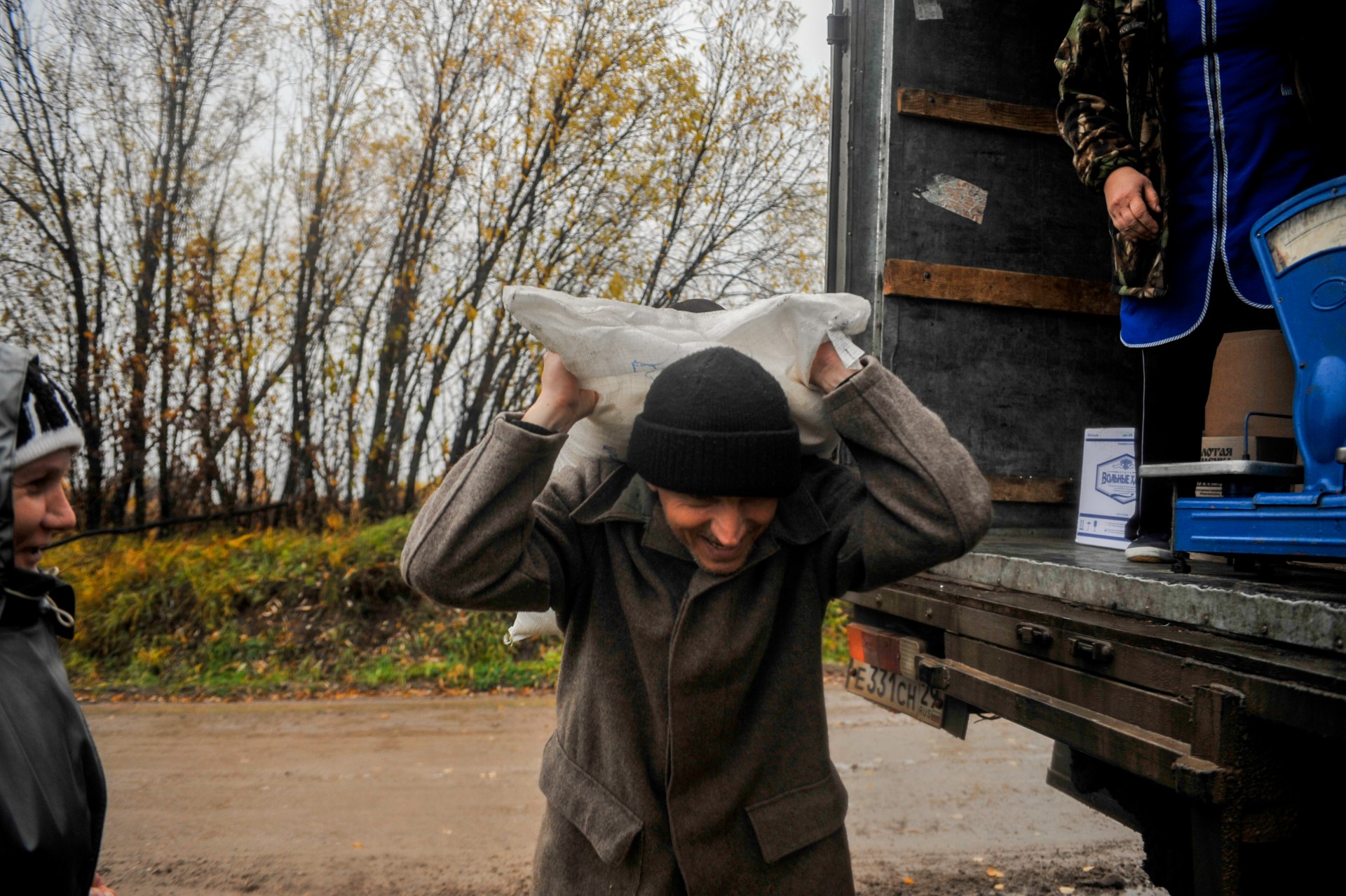
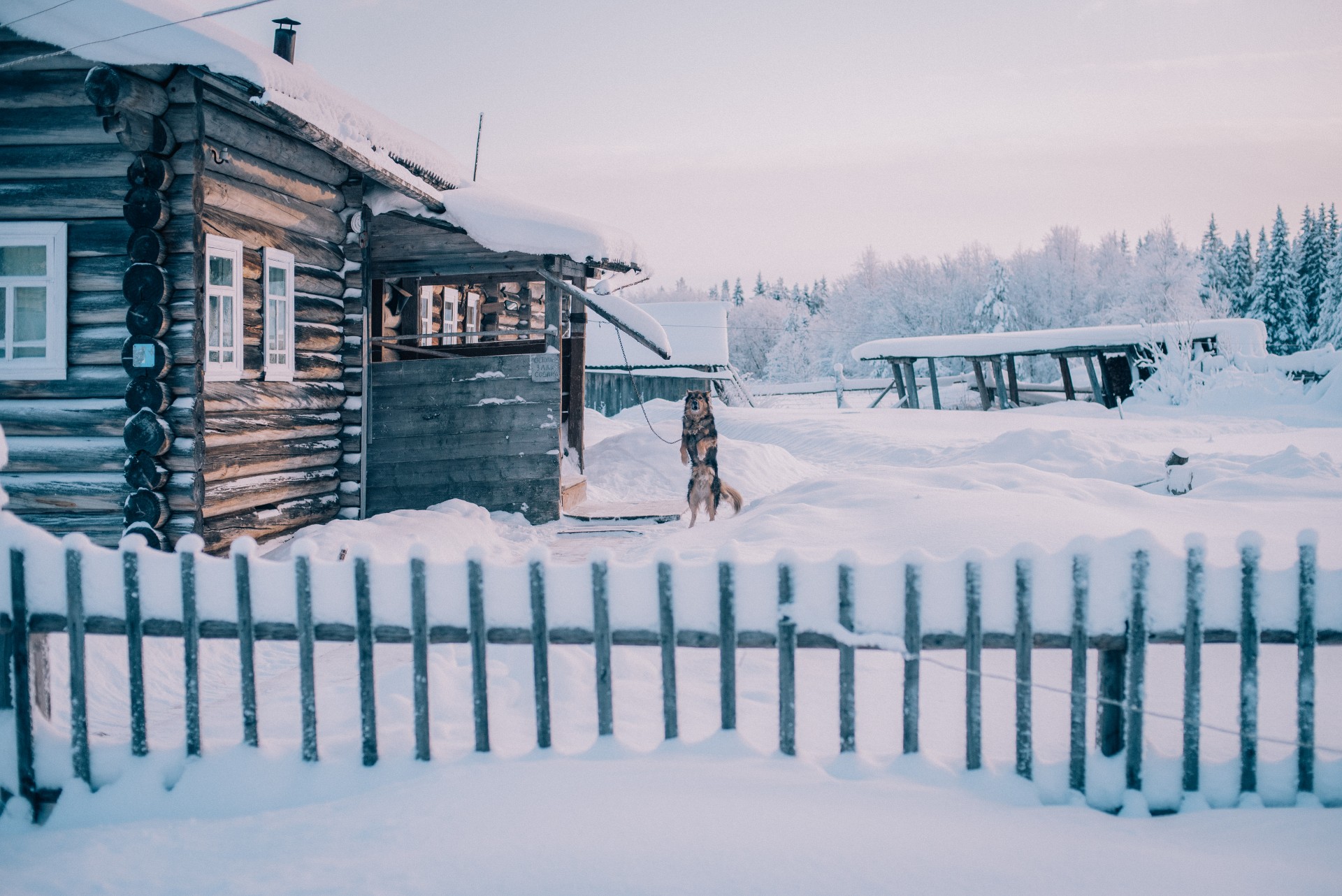
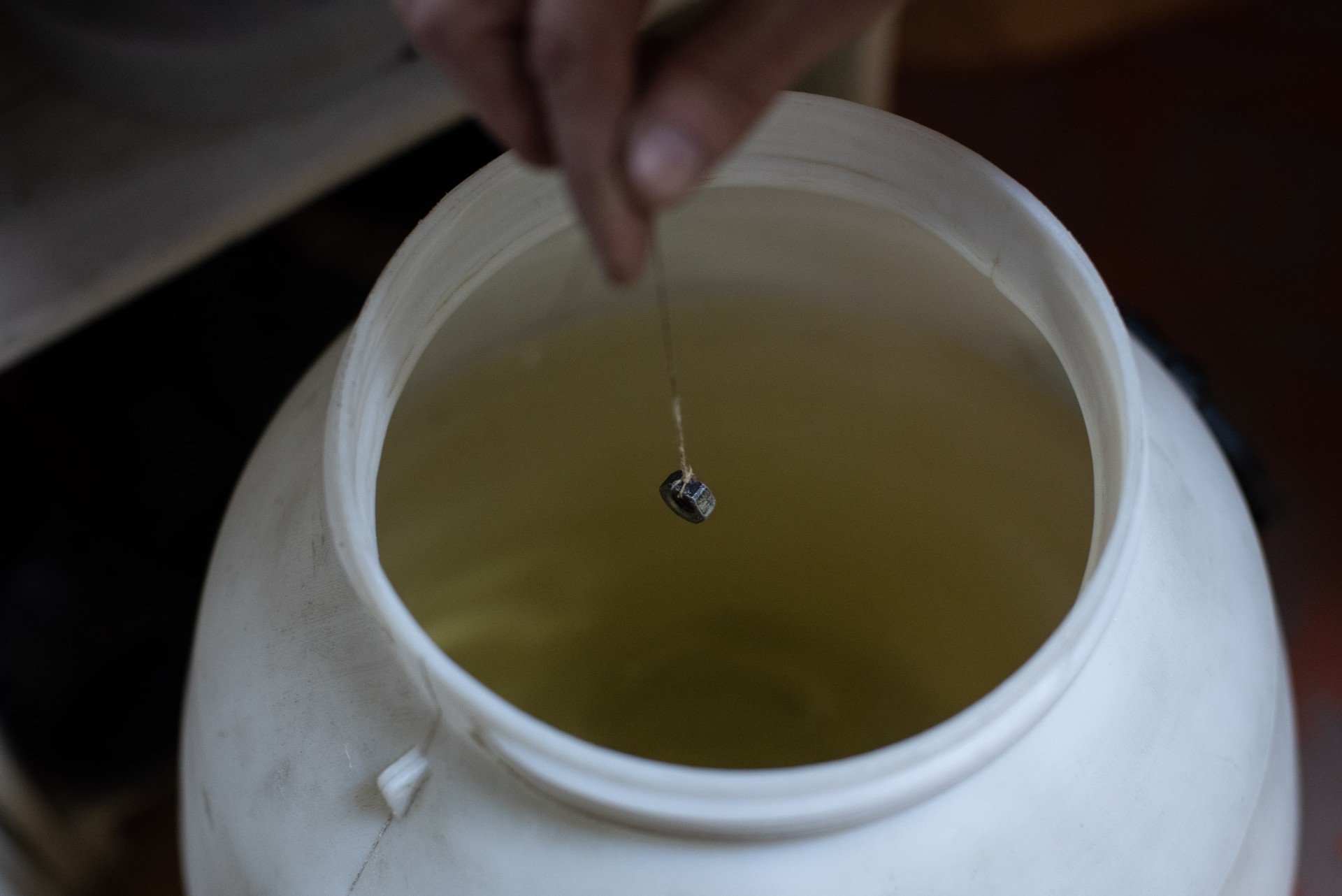
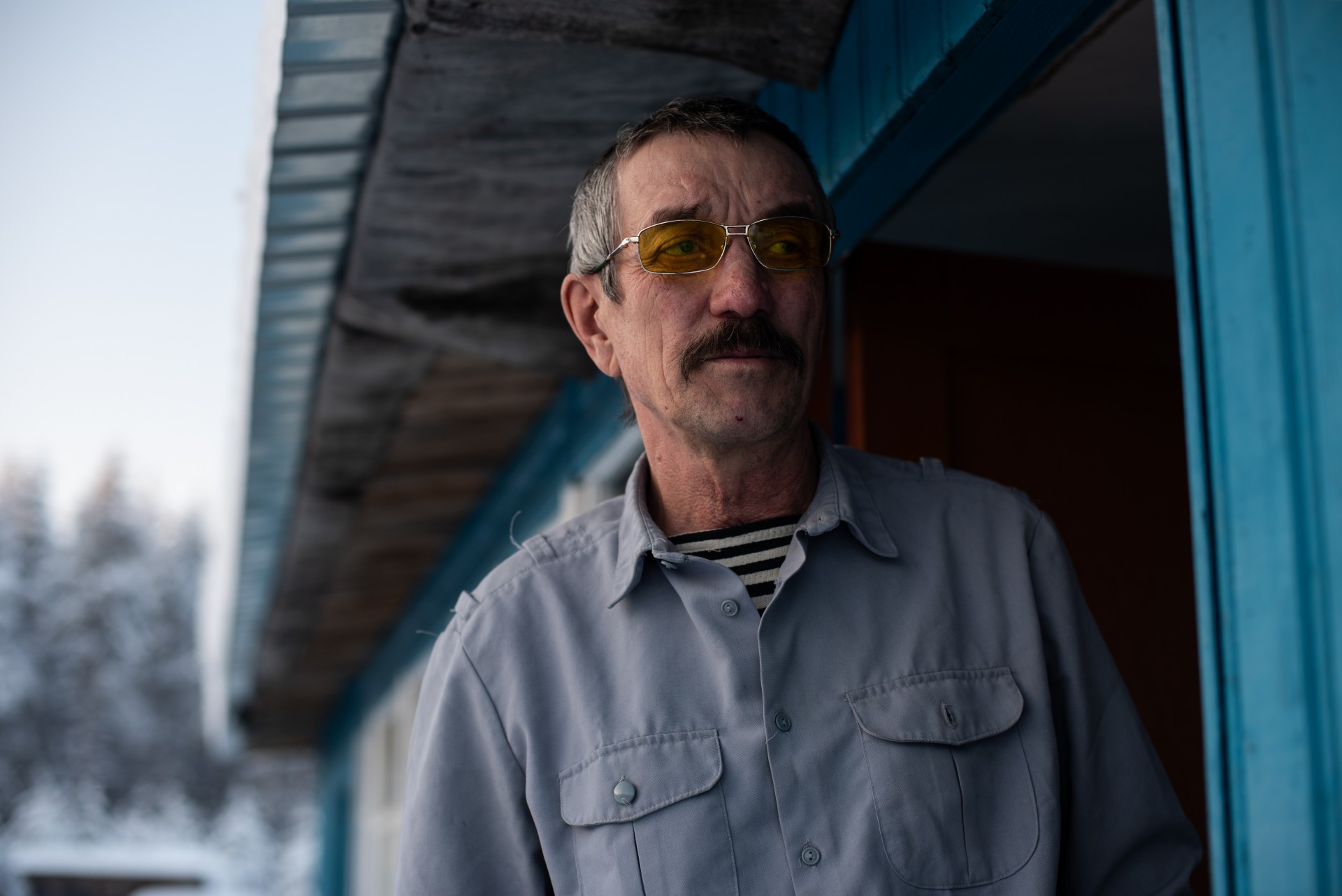
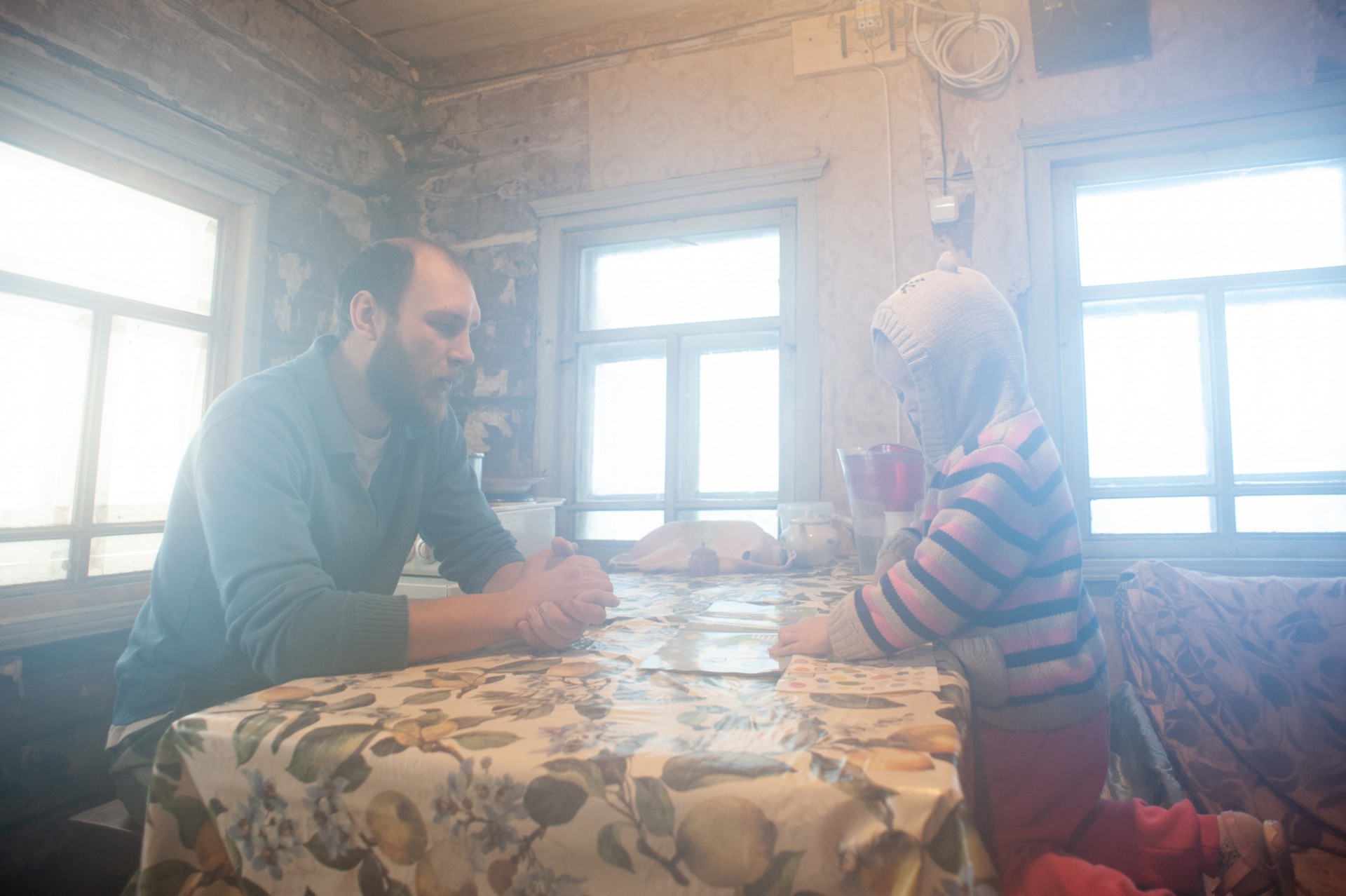
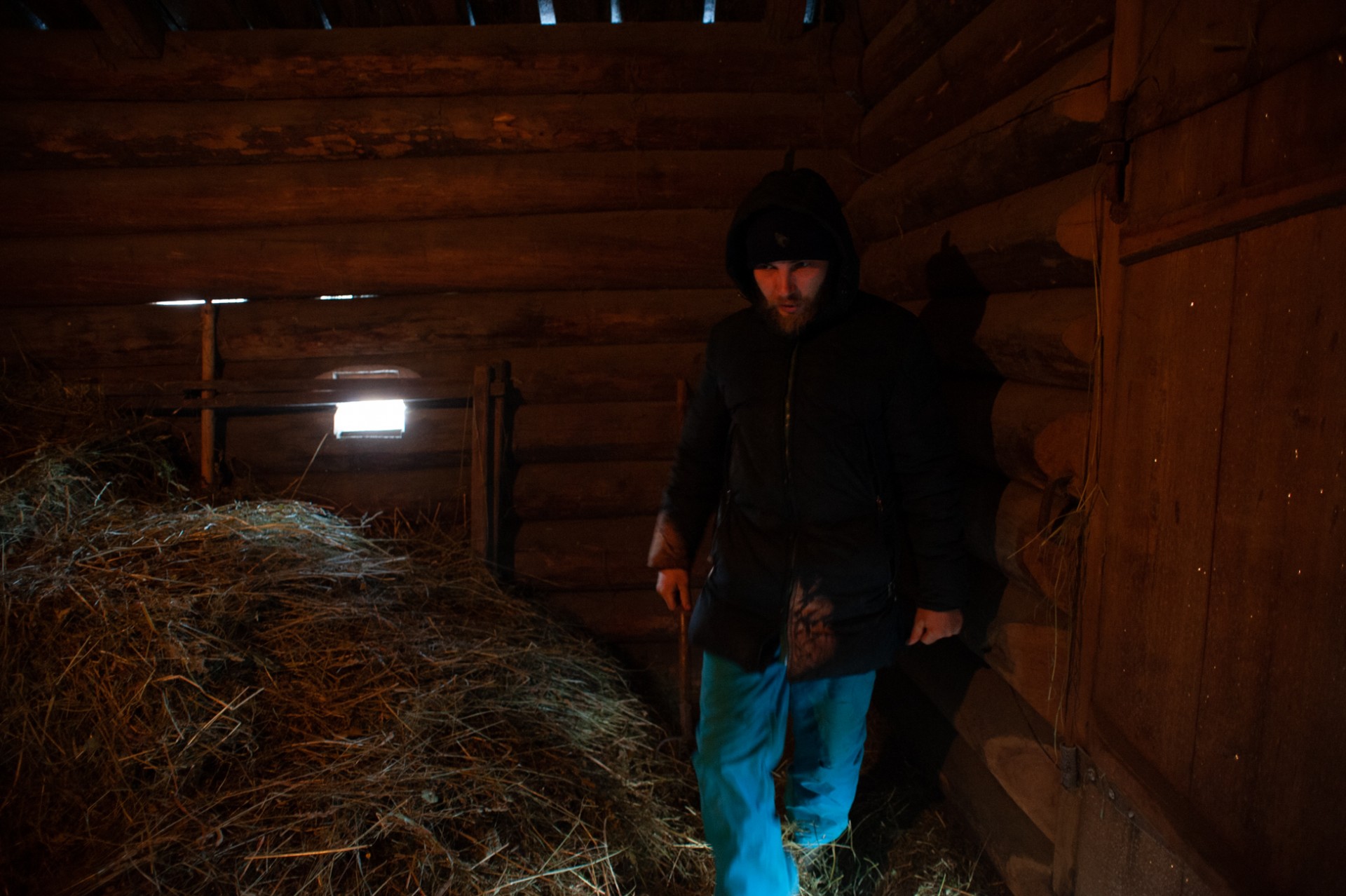
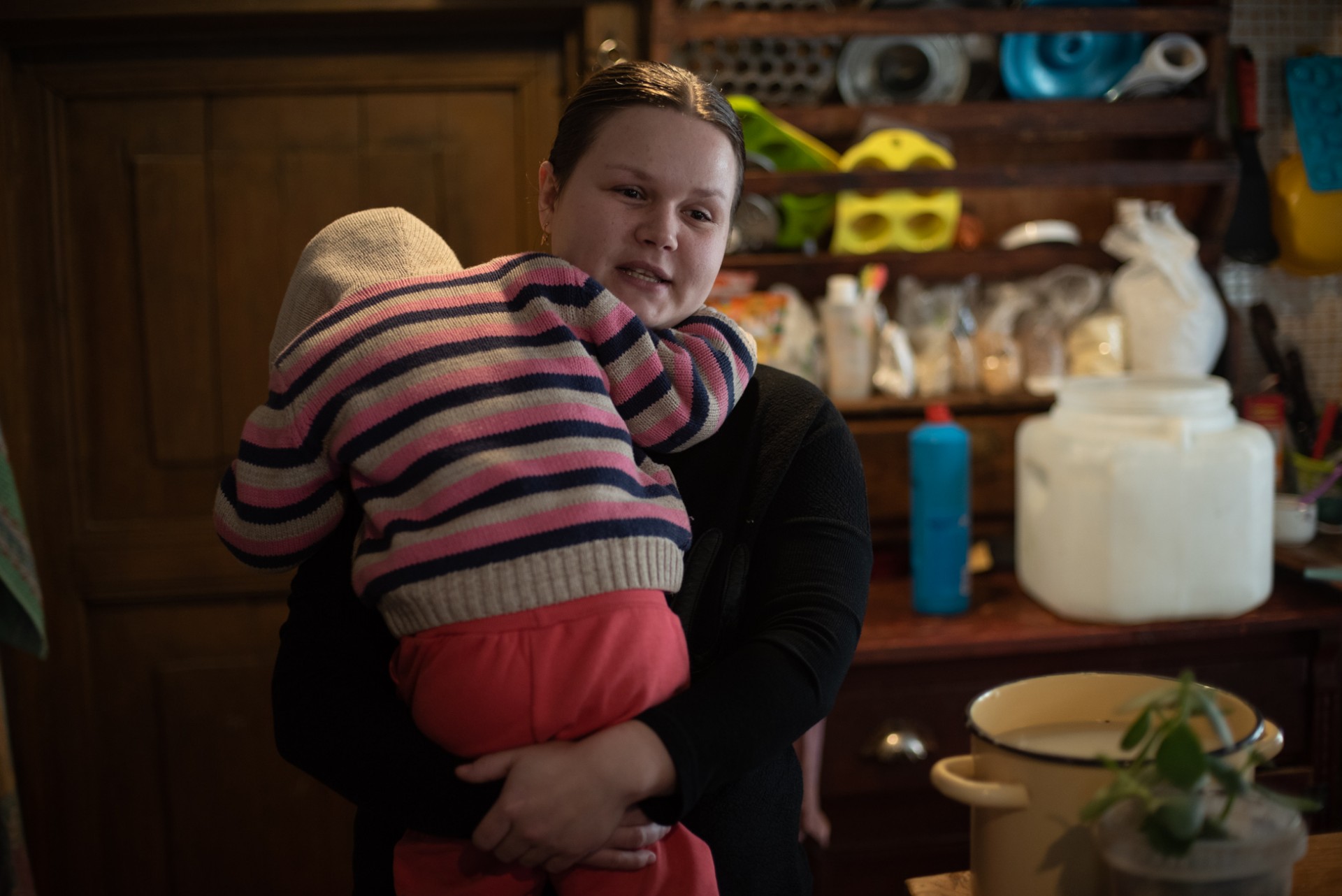
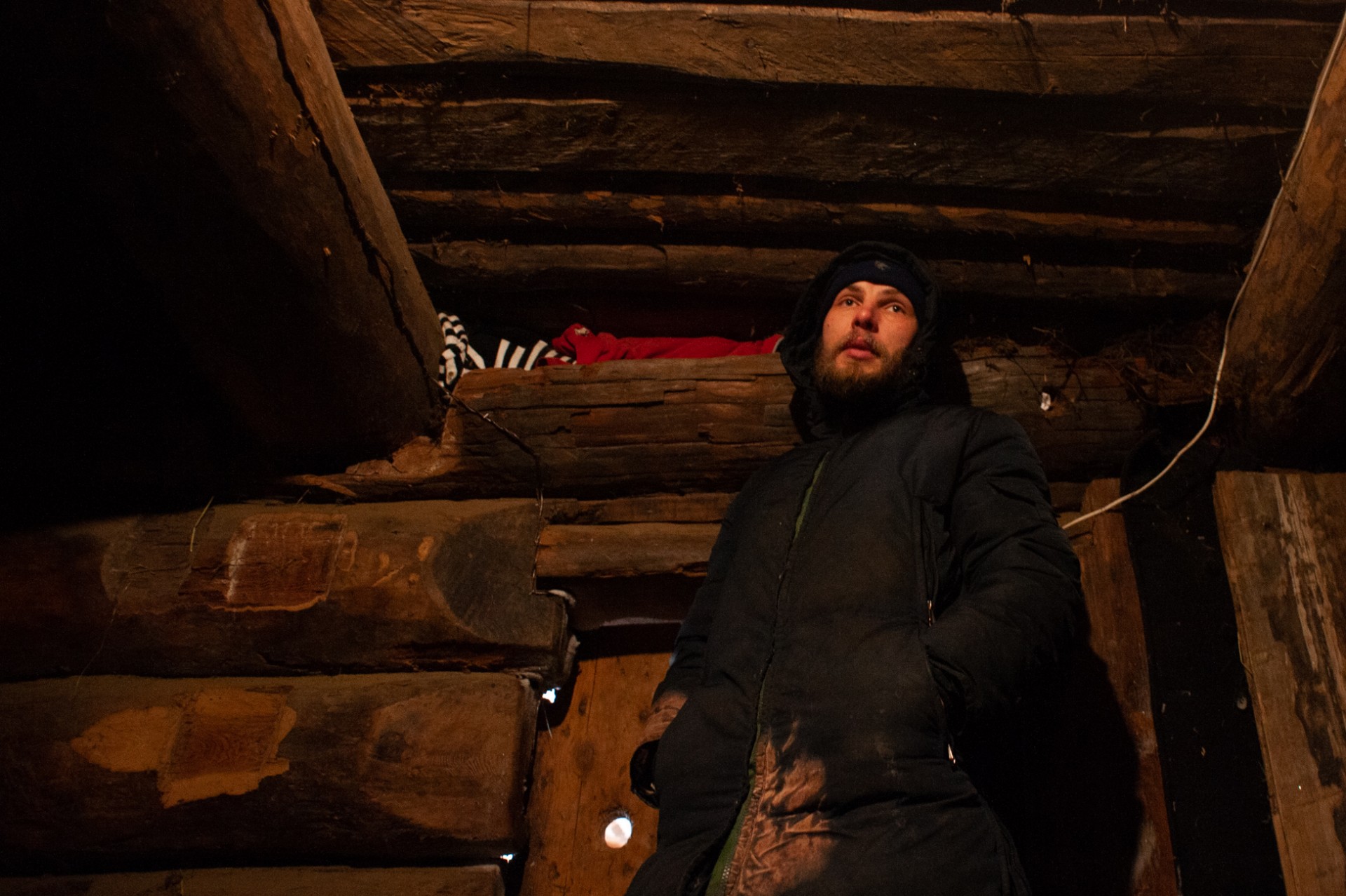
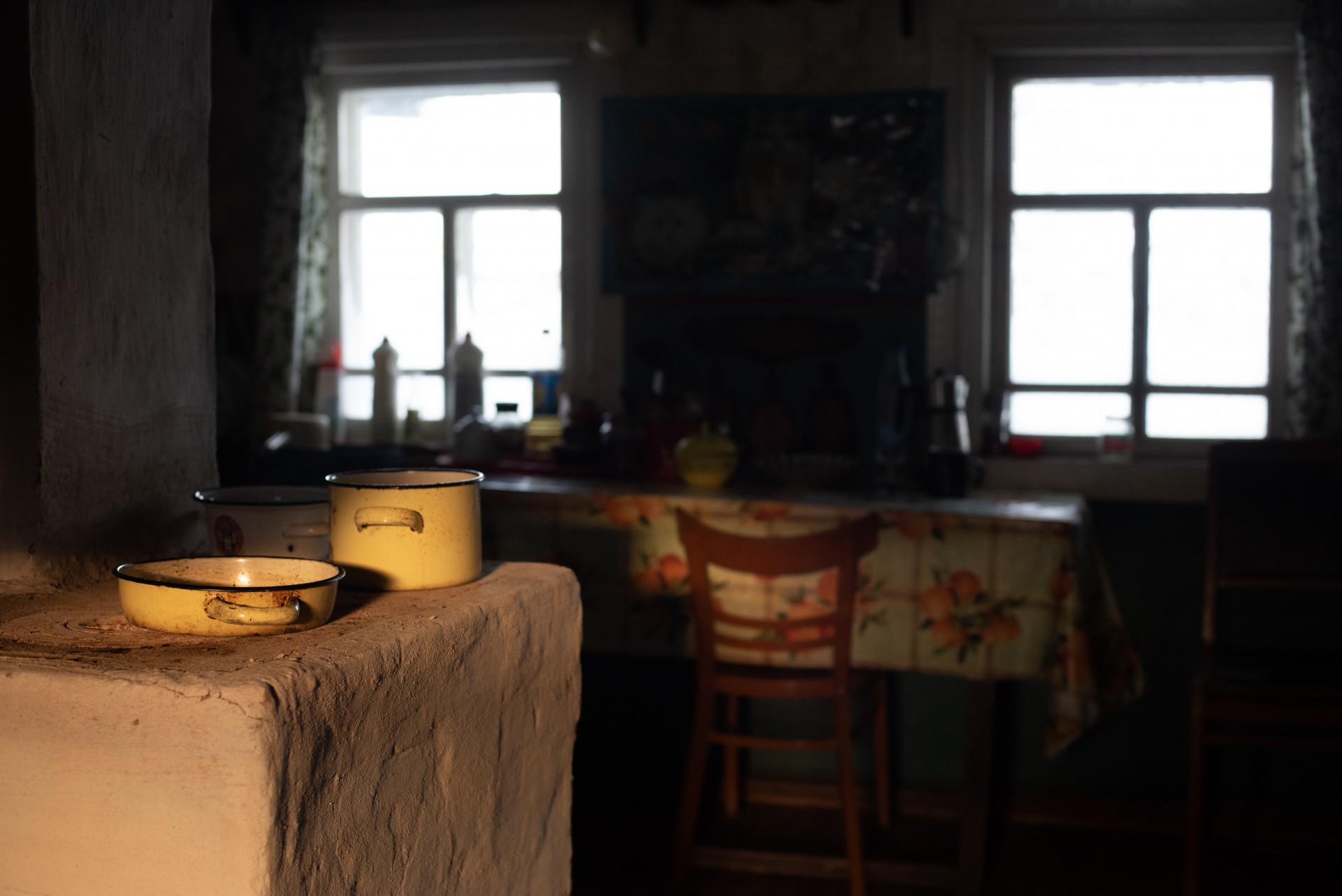
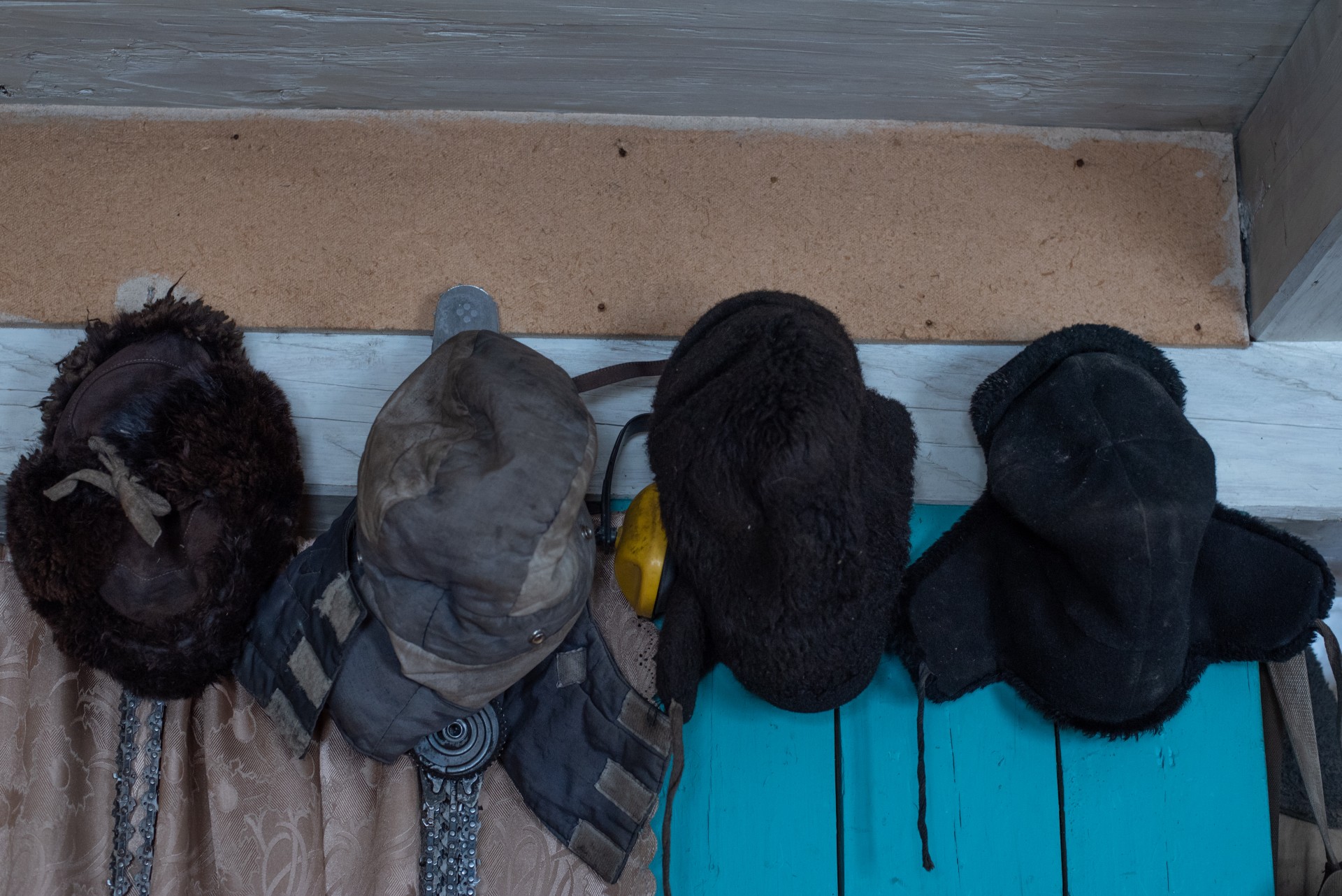
Комментарии:
Вы должны Войти или Зарегистрироваться чтобы оставлять комментарии...